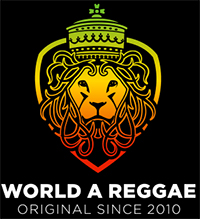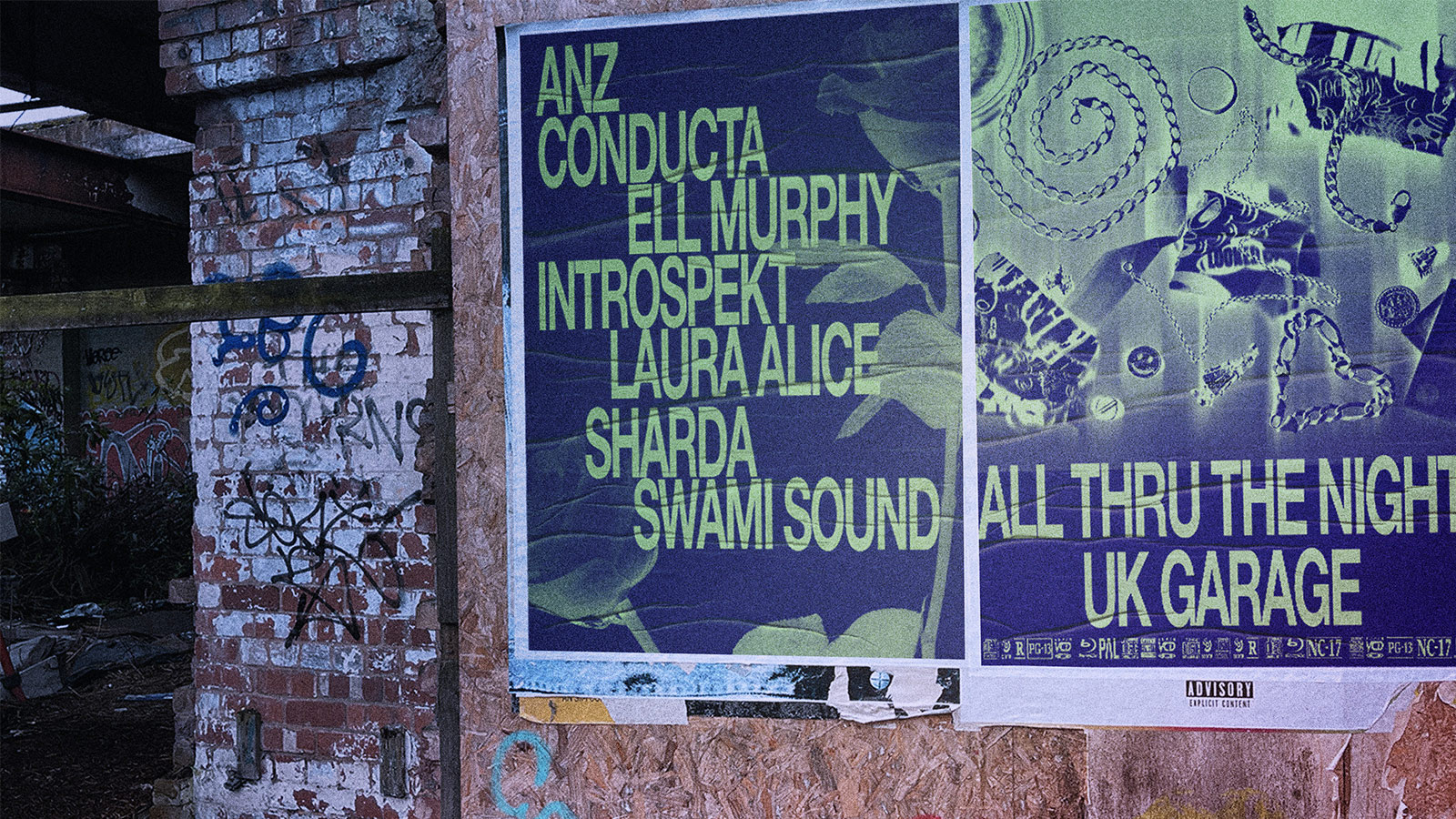Translate:
LETS GET THE PARTY STARTED THIS VALINTINES WEEK
Legends of 80s & 90s reggae music
The 80s and 90s Jamaican reggae scene was legendary, featuring icons like Beres Hammond, Buju Banton, Shabba Ranks, Capleton, Bounty Killer, and Super Cat, alongside enduring figures like Bob Marley (though his peak was earlier, his influence defined the era) and Jimmy Cliff, with vibrant Dancehallemerging alongside classic roots reggae, showcasing powerful voices and cultural depth through lovers rock, conscious lyrics, and energetic rhythms. This video
MORANT BAY ST THOMAS JAMAICA WHERE HERITAGE LIVES
www.my-livity.com
MORANT BAY. ST THOMAS, JAMAICA
Morant bay is a significant part of both Jamaican and Caribbean folklore and heritage, due to the most honourable
Paul Bogles actions in 1865 , which lead to the end of slavery in Jamaica & the rest of the world.
Were are kicking off February with this video from big super whom I subscribe to and follow.
Since the Morant Bay rebellion very little attention has been given to develop Morant Bay and the infrastructure of
st Thomas. Most of what you see when you visit the parish has been from the endeavours of the local people.
recently st thomas, have seen signs of development in the parish with road repairs.
health and safety in the parish in a few locations is still in need of government attention in terms of inadequate foot paths,
public toilets, bridge collapse, unpassable pothole in urban areas, not everyone being able to access water.
If the government intends to include st thomas In its tourism program all the above needs some love.
What is Morant Bay known for?Behind the court house is a small park containing the ruins of the Morant Bay Fort. The fort dates from 1758 and was designed to hold nine guns. Three cannons remain there today. During an excavation behind the court house in 1973 in the park, the bodies of 79 people were discovered.
Wikipediahttps://en.wikipedia.org › wiki › Morant_BayWhen was the Morant Bay Rebellion in Jamaica?Is Morant Bay a city in Jamaica?What parish is Morant Bay in Jamaica?How far does $100 go in Jamaica?Which national hero was hanged in Morant Bay?Feedback
Instagram · nestaja130+ likes · 1 week ago
0:53Rehabilitation of the Jack's River road (Eden Hill) in St. Mary, within the constituency represented by Member of Parliament Robert Montague ...
Airbnbhttps://www.airbnb.co.uk › Jamaica › Saint ThomasTop-rated holiday rentals in Golden Grove. Guests agree: these stays are highly rated for location, cleanliness and more.Read more4.9(324)
Jamaica Gleanerhttps://jamaica-gleaner.com › gleaner › cleisure › cleisure716 Aug 2014 — Bull Bay to Yallahs has to be the dirtiest stretch of road in Jamaica. ... St Thomas' capital, Morant Bay, is even more depressing: Blocked ...Read more
Western Unionhttps://www.westernunion.com › global-services › find-l...Send money · Track a transfer · Find locations · My WU · Log in · Register · Register · Log in · svg-icon-logo-big svg-icon-logo-small. X. Home. About us.Read more
Scotiabankhttps://jm.scotiabank.com › connect-with-scotiabankScotiabank has ATMs conveniently located throughout the country, to allow easy access to your money day or night. See below for ATM locations nearest you.Read more
Social Development Commission Jamaicahttps://sdc.gov.jm › contact-usSt. Thomas. 1 Springfield Road Morant Bay, St. Thomas Telephone 1876-584-1529, 1876-982-0232. 1 Springfield Road Morant Bay, St. Thomas Telephone 1876-584 ...Read moreImages
Travelling through the town of Morant Bay, St. Thomas | Driving In Jamaica in 2023
YouTube
Back to School Walk in the town of Morant bay St.Thomas Jamaica 🇯🇲
YouTube
Morant Bay, St.Thomas. Jamaica, 🎥Via: @r1dl3yvideos , Collab your experience here, follow and turn post notification on, #876TravelStThomas #MorantBay #StThomas #Jamaica
Instagram
:quality(60)/https%3A%2F%2Fimg.discogs.com%2FZsAoguspDOuF-BM8P_iRJ2gJ7uM%3D%2F600x504%2Fsmart%2Ffilters%3Astrip_icc()%3Aformat(jpeg)%3Amode_rgb()%3Aquality(90)%2Fdiscogs-images%2FA-316028-1319044649.jpeg.jpg)
ARTIST
Bunny General
Bunny General was born in Jamaican. One of his songs is Full Up Ah Class. <a href="https://www.last.fm/music/Bunny+General">
Apple Musichttps://music.apple.com › artist › bunny-generalListen to music by Bunny General on Apple Music. Find top songs and albums by Bunny General, including Muffin Kings (feat. Danny English, Bunny General, ...Short videos
0:28Bunny General - Dubplate - Little Lion Sound - Full Up A Class ...
Bunny General | TRACKLIB.COM
Tracklibhttps://www.tracklib.com › music › artists › bunny-generalJamaican ska and reggae group. Mostly famous for backing Justin Hinds as Justin Hinds & The Dominoes. covers Chanting Down Babylon crate. Collection. Chanting ...Read more
YouTube · Bunny General8.6k+ followersTop songs ; Dance for me. Single • 2025 ; Conquer. Single • 2022 ; Sky Is the Limit. EP • 2021 ; Love Reggae Music Bad. Single • 2021 ; Chant Reggae Music. Single • ...Read more
Spotifyhttps://open.spotify.com › artistListen to Bunny General on Spotify. Artist · 75.7K monthly listeners.
Instagram · bunny_general_artist17.5k+ followers17K followers · 4.5K+ following · 488 posts · @bunny_general_artist: “”
Facebook · Little Lion Sound3.5k+ reactions · 1 month ago
1:08Bunny General - Dubplate - Little Lion Sound #ragga #dancehall #freestyle.
Reggae Land 2026
1.4mShares
About Reggae Land


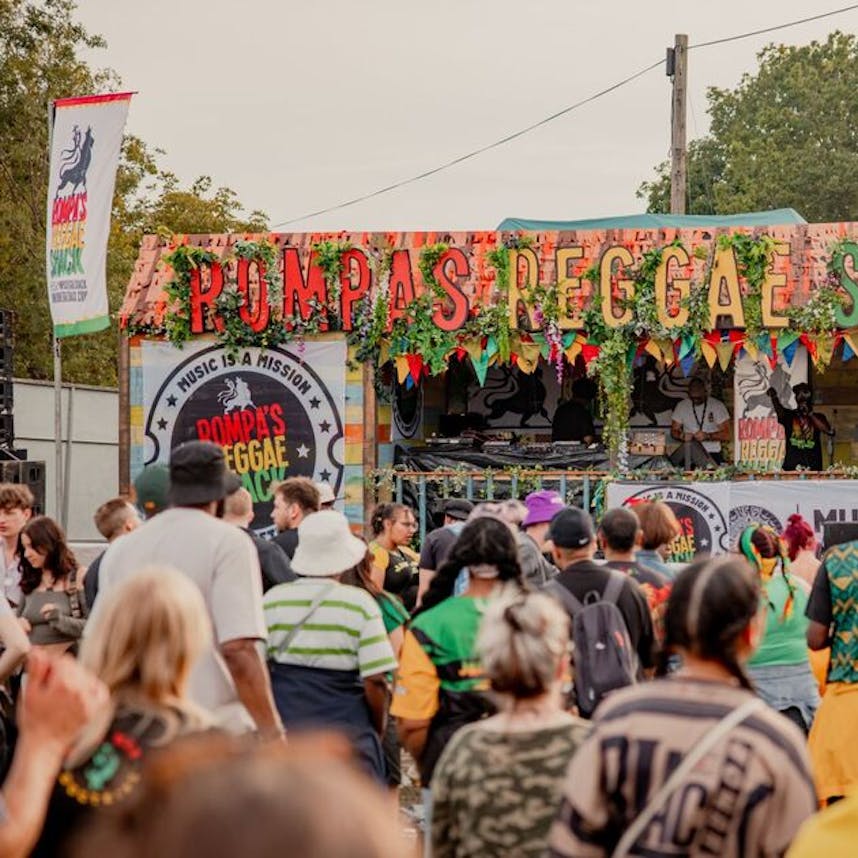 DancehallDubJungleReggae
DancehallDubJungleReggae
Reggae Land returns for 2026 on Saturday 1st and Sunday 2nd August… bigger, deeper, and more cultural than ever.
As the UK’s largest reggae festival, Reggae Land brings together 130 artists across 7 stages for a full-scale celebration of reggae, roots, dancehall, dub and Caribbean culture.
Set at the iconic Milton Keynes Bowl, Reggae Land is more than a music festival. It’s a family, a meeting point, and a shared cultural experience, uniting generations through sound system energy, live bands, selectors, food, fashion and community.
From legendary icons to global voices shaping the future of reggae, Reggae Land delivers a carefully curated lineup alongside immersive spaces that honour the culture and push it forward.
This is reggae at its fullest expression.
This is Reggae Land.
View More>
Reggae Land
 ShaggyListen to songs
ShaggyListen to songs


 Ed SoloListen to songs
Ed SoloListen to songs


Shaggy / General Levy / Deekline / Shenseea / Ed Solo / Benny Page / Barrington Levy / Beenie Man / Kranium / Tarrus Riley / Channel One Sound System / KONSHENS / Stylo G / Serani / Mungo's Hi Fi / Congo Natty / Reggae Roast / Top Cat / Ragga Twins / Alborosie / David Rodigan / Prince Fatty / Morgan Heritage / Sanchez / Hollie Cook / Ding Dong / Eva Lazarus / Third world / Richie Spice / Iration Steppas / Mungos Hi Fi / Mad Professor / Aba Shanti-i / Super Cat / Navigator / Jesse Royal / Jah9 / Killa P / Rhoda Dakar / Horseman / Charlie P / Don Letts / Earl Gateshead / Ras Kwame / Fabio & Grooverider / Daddy Nature / Robbo Ranx / Shumba Youth / PRIME/ Jamie Rodigan / Channel One / KAYA FYAH / MC Enamie / Mister Bounce / DJ Nate / Boxer Banton / Vybz Kartel/ ADJ / Sean B / CHARLY BLACK / Gully B / T-Cuts / DJ Larni / Saxon Sound / Ayito / YNG CPTN / Shayna Marie / Josh Skints / BECCA D / Queen Bee / Pure Vibes / JP / DJ Pharaoh G / Sisters In Dub / Mr Vegas / Clapper Priest / Sister Audrey / Jungle Cakes / DJ Chez / Becca Deadly / Congo Natt Y / Dj Dennyhus / Dr Alimantado / Dub Pistols Sound System / MC Go / Liam Monaghan / Lionpulse / Mad Professor & The Ariwa Posse / Mark Ryder / The Wizards / Nadine Sutherland / Raptor Mc / Ras Kwame Presents / Shabba Party Presents Janelle Wynter / Serocee & Friends / Skillzee / The Heatwave Presents Hot Wuk / Uncle Dug / Yng Cptn Sound / T O K / The King & The Royals / Samory I / Sugarkane / DJ Dansey / Sister Aisha / Inner Circle / DJ Ardi / BLVK H3RO / DJ Davda / Omega Nebula / Prince Fatty & Horseman / Greensleeves Hi Fi / VYBZ SR / Cham / Dennyhus / Kash / Side By Side Soundsystem / Little Lion Sound / Reggae Recipe / The League Of Rebelz / Scientist / Ragga Twins Crew / Ken Boothe / Teshay Mekeda
View More>Saturday 1 - Sunday 2 August, 2026The National Bowl in Milton Keynes
Reggae Land Tickets
Don't miss out!
We can send you a reminder via text or email before the tickets for this event go on sale.
Email address
(required):
Mobile number
(optional):I agree to receive marketing related to this event or artists appearing at this event, according to the Privacy Policy
- Day Tickets
- Sixth Release - Standard - SaturdayAllows entry to Saturday only
On sale in 3 days£84.93£74.50 +bfNOT ON SALE - Sixth Release - Standard - SundayAllows entry to Sunday only
On sale in 3 days£84.93£74.50 +bfNOT ON SALE - Weekend Tickets
- Sixth Release - Weekend - Standard (Saturday & Sunday)Allows entry to Saturday & Sunday at Reggae Land
On sale in 3 days£165.30£145.00 +bfNOT ON SALE - VIP
- Final Release - VIP - SaturdayVIP includes golden circle & VIP area at main stage, fast track entry, VIP Bar & extra toilets.£134.40£120.00 +bfSOLD OUT
- Final Release - VIP - SundayVIP includes golden circle & VIP area at main stage, fast track entry, VIP Bar & extra toilets.£134.40£120.00 +bfSOLD OUT
- Final Release - Weekend - VIP (Saturday & Sunday)VIP includes golden circle & VIP area at main stage, fast track entry, VIP Bar & extra toilets.£268.80£240.00 +bfSOLD OUT
- Children
- Child ticket - Saturday - StandardMust be under 16. Under 18's must be accompanied by a legal guardian. Allows entry to Saturday only!£33.63£29.50 +bfNOT ON SALE
- Child ticket - Sunday - StandardMust be under 16. Under 18's must be accompanied by a legal guardian. Allows entry to Sunday only!£33.63£29.50 +bfNOT ON SALE
- Child Ticket - Weekend (Saturday & Sunday) - StandardMust be under 16. Under 18's must be accompanied by a legal guardian. Allows entry Saturday & Sunday£67.26£59.00 +bfNOT ON SALE
- Under 4s Child Ticket (Free Entry) - SaturdayMust be presented with a full price paying adult ticket.£0.00£0.00NOT ON SALE
- Under 4s Child Ticket (Free Entry) - Sunday
Go 
SUPPORT WORLD A REGGAE
![]()
NEWSLETTER SIGN UP
Email address:
ADVERTISEMENT

Photos
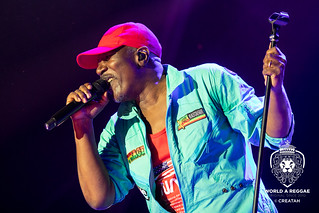
Reggae = World A Reggae. Your main source for all things Reggae, Dancehall, and Jamaican Culture since 2010.
World A Reggae Ent. and Worldareggae.com are Trademarks of Topicz:Creative. © 2022. All Rights reserved.
© 2021 WORLD A REGGAE ENTERTAINMENT
SIGN UP FOR OUR NEWSLETTER
Email address:
The Content on this website may not be reproduced, distributed, cached, transmitted or otherwise used, except with the prior written permission of World A Reggae Entertainment.
FIND US ON YOUTUBE
Privacy & Cookies: This site
Ding Dong (reggae musician)
From Wikipedia, the free encyclopediaJump to navigationJump to searchDing Dong RaversBirth nameKemar Christopher Dwaine OtteyAlso known asDing DongBornKingston, JamaicaOriginNannyville, KingstonGenres
Occupation(s)Singer, Songwriter, DancerYears active2005 to presentLabelsRomeich EntertainmentWebsitewww.instagram.com/dingdongravers
www.facebook.com/dingdongraversja
Kemar Christopher "Ding Dong" Dwaine Ottey (born September 29, 1980) is a dancehall reggae artist and dancer. He was a dancer before becoming a Jamaican deejay (artiste) and dancehall reggae recording artist.[1][2] His most notable songs "Bad Man Forward / Bad Man Pull Up" (2005) "Fling" and "Genna Bounce" released in 2017 has assisted in his global appeal.[3] He founded the dancing syndicate Ravers Clavers..
we are featuring :
YouTube · JEANDRA WAS HERE: Ringside to Red Carpet16.6k+ views · 7 years ago
4:31AND PLEASE SUBSCRIBE! DEONTAY WILDER EXPLODES ! TALKS 400 YEARS AS A SLAVE IN AMERICA AT VS FURY PRESS CONFERENCE. 16K views · 7 years ago.People also askHow much did Deontay Wilder get paid per fight?How much is Deontay Wilder worth in 2025?What is the story of Deontay Wilder?What is Deontay Wilder's power?Feedback
Facebook · The Shizzio Show4 reactions · 1 month ago
1:02Yeah. Through slavery Jim Crow into the modern day. What I wanted to get him to do was have been nearly as impactful as what he actually did.
YouTube · TheMacLife1m+ views · 7 years ago
3:29Chaos occurs when Deontay Wilder ... "my people been fighting for 400 years" there we go.. when this guy loses he will blame it on slavery.
STAMPEDE STREET CHARTS
https://www.instagram.com › stampedechartSTAMPEDE TOP ARTISTE PROMOTER FROM JAMAICA..OWN STAMPEDE STREET CHART.. PROMOTE ARTISTE WORLDWIDE. SONGS PROMOTION ..WHATTAPPS 18764991756 ; 24 posts ; 10.8K ...
0:32STAMPEDE STREET CHARTS DANCEHALL / REGGAE CHART
GRIME THE DOCUMENTARY
A new music documentary exploring the early years and development of grime in the UK is now available to stream on iPlayer as part of BBC Four's Storyville series.
8 Bar: The Evolution of Grime features a number of pioneers credited with pushing the sound of East London to the world, including Skepta, Kano, Dizzee Rascal, Jammer, D Double E, Slimzee and DJ Target. Made up of rare archive footage and recent interviews, it charts how a DIY culture emerged on pirate radio stations and at basement raves, sowing the seeds for iconic singles, albums and fashion that would define Britain in the first decade of the 21st Century.
BEST INDIAN & JAMAICAN REGGAE 2025
- Indian Reggae and Dancehall Songs - playlist by Ian | SpotifyVibe to the reggae and dancheall music from India. Ian. 206 saves44 min 45 sec. Boom Shack-A-Lak. Apache Indian. Raastamahn. Epr I...
Spotify - Web Player: Music for everyone
- Apache Indian (musician) - WikipediaSteven Kapur BEM (born 11 May 1967), known by the stage name Apache Indian, is a British singer-songwriter and reggae DJ, who had ...
Wikipedia
MELISSA
STAND FIRM JAMAICA A SONG OF HOPE & PROTECTION
World Bash UK EDITION 2024

World Bash UK
Share on:
Over 18s onlyBuy Tickets
World Bash comes to the UK poised to showcase the "biggest and baddest sound systems" in the world. A supercharged sound system stage show, and a star-studded line-up of some of the most significant players in the sound system industry.
World Bash is a celebration of sound culture, with a mix of classic anthems and good music, it's a show for dubplate lovers and champagne spillers alike

VENUE
O2 Academy Birmingham 16 - 18 Horsefairs
Birmingham, B1 1DB + Google Map
📣WORLD BASH📣 –
THE UK’S FIRST SOUND SYSTEM CONCERT WHERE 🔥LEGENDS MEET RIVALS🔥
playlistWho is the most famous Jamaican reggae performer?What's the biggest reggae song of all time?Who were the Jamaican artists in the 90s?Who were the Jamaican artists in the early 2000s?Who were the reggae groups in the 80s?
80s & 90s Reggae Classics Mix | Shabba Ranks, Supa Cat ...
YouTube · Live LinQ137.8k+ views · 1 month ago
45:2580s & 90s Reggae Classics Mix | Shabba Ranks, Supa Cat, Buju Banton, Admiral Bailey, By Live LinQ. 137K views · 1 month ago #reggaemix ...Missing:
legends | Show results with: legends
Smooth Radiohttps://www.smoothradio.com › features › top-songs › r...18 Jul 2023 — 'Kingston Town' was first recorded by Lord Creator in 1970, which praises the beauty and charm of Kingston, the capital of Jamaica. The song was ...Read more
Facebook · Morning jokes🤣🤣🤣🤣 memes 🔥🔥1 comment · 1 month agoOur Saturdays were filled with back-to-back legends: Bob Marley, Jimmy Cliff, Peter Tosh, Culture, Burning Spear, Lucky Dube and many more. "I ...Read more
People also askWho are the top 10 reggae artists?Who is the biggest reggae artist of all time?Who was the female reggae artist in the 1990s?Who is the #1 Jamaican artist?
Prominent female Jamaican reggae artists include icons like Marcia Griffiths (the "Queen of Reggae"), Rita Marley, Judy Mowatt (I-Threes), Sister Nancy, Tanya Stephens, and newer voices like Lila Iké and Jah 9, known for their powerful contributions to roots reggae, dancehall, and messages of empowerment and spirituality. This video showcases Lila Iké, a contemporary female reggae artist:52s
ABC NewsYouTube • 30 Aug 2025Classic & Iconic Artists:
- Marcia Griffiths: A legend, famous for her solo hits like "Electric Boogie" and as part of Bob Marley's I-Threes, per Enki's Music Records and thereggaemuseum.com.
- Rita Marley: Bob Marley's wife and a strong solo performer, known for "One Draw".
- Judy Mowatt: Another I-Threes member, acclaimed for her album Black Woman.
- Sister Nancy: Famous for the iconic anthem "Bam Bam".
- Phyllis Dillon: A pioneer of the Rocksteady era.
- Dawn Penn: An influential voice in rocksteady and reggae.
Contemporary & Modern Voices:
- Queen Ifrica: Known for deeper vocals and songs of social justice.
- Lila Iké: Blends reggae with R&B, dancehall, and hip-hop, earning multiple awards.
- Jah 9 (Janine Cunningham): Blends protest, spirituality, and social justice in her music.
- Tanya Stephens: Celebrated for fearless lyrics and hits like "It's A Pity".
This video features Tanya Stephens, a prominent female reggae artist:00:25
Band on the WallInstagram • 10 Jul 2025These artists represent a rich legacy and vibrant future for women in Jamaican reggae.
- Women of Reggae7 Mar 2025 — Other female artists in reggae include: * **Marcia Griffiths** A reggae icon who has been a force in the industry for de...
Reggae Land
- 10 Iconic Female Reggae Singers Of All Time | VictrolaBorn Ventrice Morgan, Queen Ifrica is a reggae singer, DJ, and philanthropist whose two 21st century albums have landed in the reg...
Victrola
- Recommend some female reggae singers11 Feb 2025 — Here are some female reggae singers: * **Sister Nancy** Known for her song "bam bam" * **Hirie** On the pop end of the ...
Reddit
Show allDive deeper in AI Mode
CHERRY V . BOB MARLY ONE DROP . Remix
Videos1:43Bob Marley (One Drop) Chris Brown (Sensational) & Tyla ...YouTube · Cherri V18 Jan 2024
3:52Bob Marley - One DropYouTube · Bob Marley - Topic30 Oct 2018
3:49Bob Marley - One Drop (Very Rare)YouTube · KingSize0509 Jun 2012
1:00Riddim a Day #30 - One Drop (Bob Marley) with Jake PardeeYouTube · Pulp & Fizz19 May 2018
Key Legends & Artists:
- Beres Hammond: The "Queen of Lovers Rock," known for his soulful voice and hits like "Tempted to Touch".
- Buju Banton: A versatile artist, moving from conscious roots to hardcore dancehall, known for "Bogle" and "Wanna Be Loved".
- Shabba Ranks: A dancehall pioneer, famous for his commanding presence and hits like "Mr. Loverman".
- Capleton: The "Fireman," known for his energetic performances and Rastafari-infused lyrics.
- Bounty Killer: A dominant force in 90s dancehall, known for his raw lyrical style and hits like "Poor People's Choices".
- Super Cat: "The Wild Apache," a major crossover star with tracks like "Dolly House" and "Ghetto Red Hot".
- Patra: The "Queen of Dancehall," a trailblazer for female artists with hits like "Worker Man".
- Dennis Brown & Gregory Isaacs: Though rooted in the 70s, their romantic reggae sound remained hugely popular into the 80s.
Musical Styles of the Era:
- Lovers Rock: Smooth, romantic reggae, exemplified by Beres Hammond and Gregory Isaacs.
- Roots & Conscious Reggae: Continued themes of spirituality, social justice, and love, influenced by Marley but evolving with artists like Capleton.
- Dancehall: Exploded in the 80s and dominated the 90s, featuring faster rhythms, DJ/toasting, and themes of street life, romance, and culture.
This video is a compilation of some of the best reggae hits from the 70s, 80s, and 90s:34s
SUPREMACY SOUNDSYouTube • 2 Aug 2025These artists shaped the sound of Jamaican music, influencing global genres and leaving a rich legacy of timeless tracks that defined the 80s and 90s.
- 90s Dancehall Reggae (throwbacks) - playlist by Omar Jamison | Spotifyclassic 90s Dancehall/Reggae. Artist like Buju Banton, Shabba Ranks, Beres Hammond, Patra, Super Cat and more.
Spotify - Web Player: Music for everyone
- 90s Dancehall - silver star soundIcons like Buju Banton, Bounty Killer, Capleton, Terror Fabulous, Mad Cobra, General Degree, Merciless, Super Cat, Lady Saw, Ghost...
silver star sound
Victrolahttps://www.victrola.com › blogs › articles › 10-iconic-...Performing under the stage name Etana, Jamaican singer Shauna Mackenzie is a vocal powerhouse and another fantastic example of modern reggae. Long before her ...Read morePeople also askWho was the female reggae artist in the 1980s?Who was the female reggae artist in the 1990s?Who is the famous female reggae song?Who were the Jamaican singers in the 90s?FeedbackVideosSevana, Jaz Elise, Lila Ikè and Naomi Cowan | Rock & Groove ...YouTube · BBC Radio 1Xtra8 Mar 2020YouTube · BBC Radio 1Xtra
12:37Etana | 1Xtra Jamaica 2024YouTube · BBC Radio 1Xtra18 Apr 2024YouTube · BBC Radio 1Xtra
15:3610 Iconic Female Reggae Singers of All TimeYouTube · Celebrity & Entertainment Trends19 Jul 2025YouTube · Celebrity & Entertainment Trends
16:52YouTubeYouTube · Little Lion Sound16 Jul 2023YouTube · Little Lion Sound
2:35View all
Enki's Music Recordshttps://enkismusicrecords.com › top-female-reggae-artistsThe Queens of Reggae: Jamaican Female Artists to Know · Marcia Griffiths · Judy Mowatt · Rita Marley · Phyllis Dillon · Sister Nancy · Hortense Ellis · Cynthia ...Read more
TikTok · QUEEN OMEGA10.5k+ views · 8 months ago
0:48Celebrate with us as Queen Omega is nominated for Best Female Reggae Artist! Vote now and support Caribbean music.
YouTube · Spotify for Artists3.4k+ views · 1 year ago
2:25In our newest Making it With Spotify feature, Jamaican pop star @Shenseea talks about her musical journey. From being inspired by Michael ...
Reddit · r/MusicRecommendations30+ comments · 11 months agoHempress Sativa, Etana, Koffee, Hollie Cook, Lila Ike, Sevana,Queen Ifrica, Spice, Stefflon Don to name a few.Read moreReggae By Women?52 posts25 May 2021Best Female Reggae43 posts31 Dec 2022More results from www.reddit.com
Reggae Landhttps://reggaeland.co.uk › Category: NewsBest known for the timeless classic No, No, No, Dawn Penn is one of reggae's most influential female voices. With a career spanning decades, she remains an icon ...Read more
Instagram · shenseea9.5m+ followers9M followers · 615 following · 147 posts · @shenseea: “Jamaican Queen Bookings@shenseeamusic.com”
YouTubehttps://www.youtube.com › playlistOriginal Koffee - West Indies (Official Video) · Ace of Base - All That She Wants (Official Music Video) · Dawn Penn - No, No No (Official V
REGGAE REVIVAL CUP CLASH IN WOLVERHAMPTON
YouTube · TV SOUND SYSTEM650+ views · 9 months ago
29:25Twenty years ago, I hosted my first Wolverhampton Revival Cup Clash. Two decades later, we look back and ask the question…
Facebook · UK sound systems clash forum10 months agoEXTREMELY IMPORTANT NOTICE 2025 Wolverhampton Revival Cup Clash This is not just another sound clash it's a competitive musical showdown ...
THE QUEEN OF LOVERS ROCK “JANET KAY “
WOLVERHAMPTON COMMUNITY EVENT
HERITAGE C
Janet Kay Bogle was born in Willesden, North West London. She was discovered singing impromptu at a rehearsal studio by Tony "Gad" Robinson, the keyboardist from Aswad, who recommended Kay to Alton Ellis. The Jamaican-born Ellis, a successful rocksteady vocalist, had relocated permanently to London, where he continued to be involved with reggae music and was looking for a female vocalist to record a reggae cover of Minnie Riperton's song "Lovin' You".[3]
Shaggy & Sting Reunite for New Single, "Til A Mawnin"
Best Friends and Iconic Duo to Co-Headline the Reggae Rise Up Festival
Following the Grammy Award for their collaborative album, 44/876, music icons Sting and Shaggy are back with “Til A Mawnin” - a new single and music video that celebrate one of the pillars of reggae culture: Sound-System. The pair’s latest release, out February 27 via a partnership between Shaggy’s Ranch Entertainment and the seminal reggae/dancehall label, VP Records, takes listeners through the rich roots of reggae, blending
1 extra #Sixty Minutes Live- Kurupt FM Takeover . Enjoy
Pirate radio never died. Its golden age may have faded, but the DIY broadcasts that shaped a generation of UK rappers in the noughties are still going on. You just need to know where to look…
Based in Brentford, west London, are Kurupt FM, the group of dodgy DJs and inept MCs whose BBC mockumentary People Just Do Nothing first aired in 2014. Led by MC Grindah (played by Allan Mustafa), the core group of station co-founder DJ Beats (Hugo Chegwin), unpredictable weedhead Steves (Steve Stamp)
JOHNNY GILL “ OUTSTANDING “
Johnny Gill Jr. (born May 22, 1966) is an American singer and actor.[1] He is the sixth and final member of the R&B/pop group New Edition and was also a member of the supergroup called LSG, with Gerald Levert and Keith Sweat.[2]Gill has released eight solo albums, three albums with New Edition, two albums with LSG, and one collaborative album with Stacy Lattisaw.
Healthy Beverages
BERES HAMMOND
BERES HAMMOND
Beres Hammond OJ (born Hugh Beresford Hammond; 28 August 1955, in Annotto Bay, Saint Mary, Jamaica)[2][3] is a Jamaican reggaesinger known in particular for his lovers rock music. While his career began in the 1970s, he reached his greatest success in the 1990s.
Biography
Born the ninth of ten children, Hammond grew up listening to his father's collection of American souland jazz music including Sam Cookeand Otis Redding.[3] He was further influenced by the native music of skaand rocksteady, in particular Alton Ellis.[3]
Hammond began participating in local talent contests from 1972 to 1973,[2] which led to his first recording, of Ellis' "Wanderer".[3] In 1975 he joined the band, Zap Pow, as lead singer,[4] leading to the hit 1978 single, "The System" under the Aquarius Records label. However, he simultaneously sought a solo career, releasing his debut album, Soul Reggae, in 1976.[3] His solo ballads "One Step Ahead" (1976) and Joe Gibbs produced "I'm in Love" (1978), were both hits in Jamaica.[3] He left Zap Pow in 1979 to pursue his solo career, and recorded two more albums Let's Make A Song in 1980 and Red Light 1981. He formed Tuesday's Children, a harmony group that toured but never recorded.[3]
Hammond formed his own record label, Harmony House Records, in 1985 for the release of his Make a Song album,[2] which had two Jamaican chart-toppers that were influenced by the emerging dancehall style: "Groovy Little Thing" and "What One Dance Can Do".[3] The latter, produced by Willie Lindo,[4] began to break Hammond into the international market. He scored another hit in 1986 with "Settling Down" on his eponymous release. He left his fame in Jamaica for New York City in 1987,[2] after being tied up as thieves ransacked his house during a home invasion.[3] There he recorded the Have a Nice Weekend album and the duet single "How Can We Ease the Pain" with Maxi Priest.[4]
Hammond returned briefly to Jamaica to record Putting Up Resistance, which was significantly harder than his typical ballads, produced by Tappa Zukie, which spawned the hits "Putting Up Resistance" and "Strange".[3] He signed with Penthouse Records in 1990 and returned to Jamaica permanently to record the dancehall smash "Tempted to Touch", with producer Donovan Germain.[4] This is perhaps his best known song in the United States and United Kingdom, and set the foundation for the hits "Is This a Sign" and "Respect to You Baby" on the 1992 A Love Affair album.[3] Also in 1992, Beres released the single "Fire". The song received critical acclaim within the Reggae music industry and it was an extremely sought after 7" single. Now garnering interest from major studios such as Elektra Records, Hammond recorded five more albums in the 1990s as well as several compilations, establishing himself as one of the top lovers rock artists. His first album of the new millennium was 2001's Music Is Life, which featured an appearance by Wyclef Jean, and contributions from Earl "Chinna" Smith and Flourgon. The album spawned several hits, including "They Gonna Talk", "Rockaway" and "Ain't It Good To Know".[2][3] The 2004 release Love Has No Boundaries, had guest spots by Buju Banton and Big Youth.[3]
The rise of reggae: How a uniquely Jamaican sound conquered the world

It originated on a small Carribean island and grew to become a global phenomenon recognised as a cultural institution by UNESCO, the story of reggae's success is closely entwined with the history of Jamaica.
Reggae's roots, springing from the social upheaval in post-war Jamaica, are a fusion of different musical eras and styles, coupled with a message of unity and hope.
How did this musical genre, with a uniquely Jamaican twist, become a worldwide brand influencing artists like Rihanna and Sean Paul?
Mento and the birth of reggae
Mento is the name given to Jamaican folk music that emerged in the 1940s and 1950s.
Similar to Calypso, which originated in Trinidad, the sound of Mento can be traced back to the convergent society of Jamaica.
Jamaica was colonised by Spain, mainly in the 1500s, and then Britain in 1655.
Enslaved people were transported from Africa to work on the country’s sugar plantations.
The resulting mix of cultures contributed to the growth of an identifiable Jamaican sound.
Characterised by the fusion of European and African traits, with origins in enslaved work songs – created with guitar, rumba box, bongo and banjo, Mento mixed this with satirical lyrics of everyday life and verse repetition, creating a foundation from which reggae would blossom.
The growth of Ska
In the 1960s the popularity of Mento began to decline as people were influenced by R&B music from the USA, played on radio stations.
Across Jamaica musicians and singers began to cover these songs and imitate their styles.
At the same time electricity was becoming widely accessible and sound systems – mobile discos on the streets – became the new craze.
Dances were a big part of the Jamaican working class community and became a place of business with people selling food and drinks, spreading money to the wider community.
Competition was rife with sound men competing to put on the best set, even sometimes resorting to violence.
It was all about the exclusivity, getting songs from overseas no one had heard of. Music became a national obsession particularly among the young.
One school in particular, Alpha Boys School, run by nuns, encouraged music playing and helped develop some of Jamaica’s greatest musicians including Yellowman, Edward Thornton and Dizzy Reece.

The influence of R&B
Meanwhile Jamaica’s professional recording industry was also starting to take shape.
Recording studios, which had concentrated on American influenced R&B, began hiring out their facilities to local musicians who recorded original songs which were picked up by sound systems, still looking for that exclusivity.
Jamaica became independent in 1962 and Ska’s upbeat rhythm reflected the mood in the newly autonomous country.
Adopting America R&B style but adding Mento elements, the new music kept a 4/4 timing with guitar or piano used to increase emphasis on the off-beat and along with a dynamic brass section and a creeping bass line, a distinct new Jamaican sound, of local singers, was created.
Ska was also growing in popularity overseas, Millie Smalls had a top five hit in the UK chart with My Boy Lollipop in 1964.
This seeping of Jamaican music in to popular culture would continue with cult 1972 film The Harder They Come, the title track of which was performed by Jimmy Cliff, with other contributors including Desmond Dekker.
Rocksteady a slower pace
Ska was a fast paced chaotic musical genre but from the mid 1960’s the climate in Jamaica that had spawned it was beginning to change.
Streets in downtown Kingston become lawless with ‘Rude Boys’ gangsters terrorising locals.
Music mirrored this and Rocksteady, a slower paced sound, grew in popularity.
Musicians would turn to old-fashioned love songs, and singers replaced instrumentals.
Rhythms became more relaxed and songs easier to dance to.
This also gave the bass line more of an emphasis as the slower pace allowed it to be more defined.
Artists such as Alton Ellis and The Techniques thrived in this era. Some artists such as Hopeton Lewis found Ska too fast to follow and so adapted to a gentler pace.
Rocksteady, however, would prove to be a brief affair, lasting around two years.

Reggae in to the mainstream
In 1966 Emperor Haile Selassie I of Ethiopia visited Jamaica – an important moment for the religious movement Rastafari which saw him as the messiah - 100,000 Jamaicans turned out to see him.
This link with Rastafarian culture would become a vital strand of reggae.
During the late 1960’s, Jamaica was on the brink of civil war, with political unrest, poverty and volatile streets.
Reggae with the bass taking charge, and drums as part of the melody, reflected this new Jamaica.
Lyrics became more conscious and words of protest and revolution changed the vibe and identity of the sound.
Roots reggae concerned itself with the everyday life and hopes of Africans, led by the Rastafarian belief and it was this genre that Bob Marley and the Wailers took global.
Marley sang of the past oppressions of slavery and the future hopes of unity.
Sub genres such as dub also formed, consisting of recycled and remixed rocksteady and ska tunes, incorporating a toaster, essentially an MC, who spoke over the song with Rastafarian messages.
The dancehall genre also emerged using digital reggae influenced rhythms.
By 1978 a failing economy and political unease was at its peak and political issues along with the musical tradition all came together in reggae to form strong lyrics with an uplifting sound to empower.
Reggae’s presence can still be felt today, influencing genres such as punk, hip hop and rock through artists such as Eric Clapton, Sean Paul, Rihanna, Protoje and Chronixx.
Through time, Jamaicans have constantly mirrored their environment through music, creating an authentic reflection of the nation.
The power of reggae, built on a foundation of history with the spirit of the Jamaican people and messages of a better future, became a notion with universal appreciation.
More from Bring the Noise
Top Stories
> Listen: British music’s Caribbean roots
> Why do children love George Ezra's Shotgun?
> Five reasons everyone should have music in their lives
> Gareth Malone's singing tips
> Download: Music colouring sheets for primary school classrooms
More
4:01Marlon Asher X Tarrus Riley X Capleton - Diamonds & Gold [Official Video 2023]YouTube · Reggaeville30 Oct 20236:59Marlon Asher, Tarrus Riley & Capleton - Diamonds and Gold (Single) 2023YouTube · Gunnzselecta4 Nov 2023
3:48Marlon Asher x Tarrus Riley x Capleton - Diamonds and Gold [Vas Productions] 2023 ReleaseYouTube · New Reggae Releases 🎧 Angeluis4 Nov 2023
1:00MASSIVE COMBINATION: Marlon Asher X Tarrus Riley X Capleton - Diamonds & Gold #videopremiereYouTube · Reggaeville30 Oct 2023
Spotifyhttps://open.spotify.comDiamonds and Gold - song and lyrics by Marlon Asher, Tarrus Riley, Capleton
Diamonds and Gold - Marlon Asher, Tarrus Riley, Capleton 3:47 © 2023 Vas Productions LLC ℗ 2023 Vas Productions LLCShort videos
Capleton, Tarrus Riley, Marlon Asher - Diamond & Gold
YouTube · capletonmusic
MASSIVE COMBINATION: Marlon Asher X Tarrus Riley X Capleton - Diamonds & Gold #videopremiere
YouTube · Reggaeville
Marlon Asher, Tarrus Riley & Capleton - Diamonds and Gold Reggae Riddim Jamaica Kenya Jahtunes
TikTok · jah_tunes
MARLON ASHER TARRUS RILEY CAPLETON
NESTA
NESTA
Nesta delivers a fresh perspective on classic Dancehall music that simultaneously ignites your senses with a new sound, and makes you want to dance like it’s the 2000s again. Born into a dynamic musical family originating from Jamaica, Nesta has strong artistic roots originating from the inspiration of T-Pain, Sizzle, Ty Dolls $ign, Sampha, and Damian Marley. The Jamaica (Queens) based artist developed his sound by studying those various influences closely, which led him to experiment with production software and various instruments.
Although proven to be musically gifted from an early age, it wasn’t until 2012 when his friends noticed his unique vocals and urged him to take singing more seriously. Nesta’s latest release, ‘Outside’, delivers his evolving sound of modern Caribbean joy with a rush of emotional nostalgia inherent to an iconic Jamaican record.
DANCEHALL
DANCEHALL IN WOLVERHAMPTON & WEST MIDLANDS
Dancehall is ultimately a celebration of the disenfranchised selves in postcolonial Jamaica that occupy and creatively sustain that space. Structured by the urban, a space that is limited, limiting, and marginal yet central to communal, even national, identity, dancehall's identity is as contradictory and competitive as it is sacred. Some of Jamaica's significant memories of itself are inscribed in the dancehall space, and therefore dancehall can be seen as a site of collective memory that functions as ritualized memorializing, a memory bank of the old, new, and dynamic bodily movements, spaces, performers, and performance aesthetics of the New World and Jamaica in particular.[38]
THE BEST OF MIKEY SPICE
Mikey SpiceJamaican singerOverviewSongsAlbums
Here I AmWalk a Mile·2007
When You're LonelyBorn Again·2006
Yes Mi FriendHarder Than Before·2009
Born AgainReggae Max: Mikey Spice·2000Videos
2:15:38Mikey spice Best of Reggae lovers rock mixYouTube · DJ MURRAY / Music master12 Jul 2022
4:06Mikey Spice - I Am I Said - May 2017 (Reggae)YouTube · dj smooth14 May 2017
1:20:11Mikey spice Best of Reggae lovers rock culture mix DJ MURRAY 18768557770YouTube · DJ MURRAY / Music master5 Jun 2020
48:30Mikey Spice | The
Skyline Radio Wolverhampton
Skyline radio station celebrates 20 plus years of service to the people of wolverhampton and surrounding areas.
Skyline Radio3 years ago
0:09Skyline Radio Videos of Interest - Welcome to the archives!! Here you will find interesting links to Interviews, News, Reviews & much more.Missing:
cherry v
skylineradio.org.ukhttps://www.skylineradio.org.uk › Radio ShowsFor youEasy Tuesday show hosted by DJ Valentino. 5pm – 7pm. Mix & blend. Playing the best of RnB, Soul, Lovers Rock, Dancehall, Soca, Afrobeats, Reggae music.Missing:
cherry v
skylineradio.org.ukhttps://www.skylineradio.org.uk › Radio ShowsFor youEasy Listening Show Every Saturday 11:30pm - 2:30pm GMT Saturdays is where we play ever kind of music from rnb to reggae old and new styles.
ALL YOUR MUSIC ONLINE
Listen to the best of Bob Marley . Click watch now above
Redemption Song’: The Story Behind Bob Marley’s Timeless Anthem
Something of a last testament from reggae legend Bob Marley, ‘Redemption Song’ continues to spread its message of emancipation far and wide.
Published on
October 1, 2025
By
Ian McCann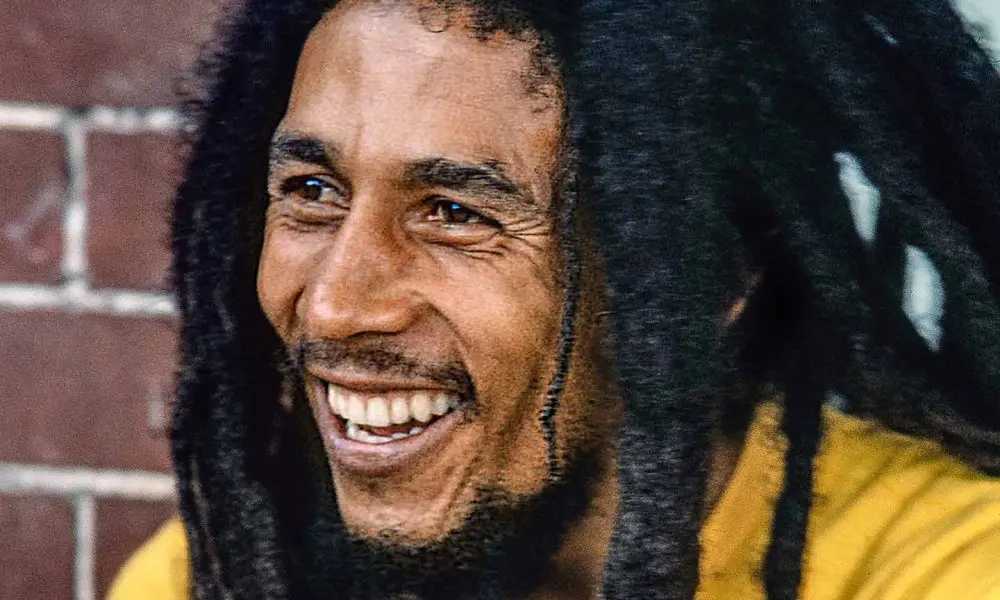 Photo: Charlie Steiner - Hwy 67 Revisited/Getty ImagesPlay Bob Marley on Amazon Music Unlimited (ad)
Photo: Charlie Steiner - Hwy 67 Revisited/Getty ImagesPlay Bob Marley on Amazon Music Unlimited (ad)
“Redemption Song”: it seems everyone who is into music knows this song. It is Bob Marley’s anthem of anthems, a testament passed to us at the end of his life to remind us how we had arrived where we were, just what we would be missing when its singer was no longer around, and to help us carry on in his absence. If that sounds like an exaggeration, search online: there are countless thousands who use Bob Marley’s music to keep them keeping on through the demands of a harsh and difficult life.

An exception, but not an aberration
The idea that songs can bring redemption has echoed down the centuries. The wretch that was saved in “Amazing Grace” was rescued from Hell by a song – “how sweet the sound.” The appalling crime he’d committed was the same crime that afflicted Bob Marley in his “Redemption Song”: the writer of “Amazing Grace” was a slaver; Bob Marley was a descendant of slaves. Marley’s songs set him free, made him somebody – though he was well aware of the mental slavery that can still exist even when you are said to be free.
While “Redemption Song,” in which Marley accompanies himself alone on an acoustic guitar, is often regarded as an exception in the singer’s canon, it is not an aberration. Bob, like most musicians of his generation, was influenced by the folk boom of the early 60s. He was aware of Bob Dylan, and his group, The Wailers, adapted “Like A Rolling Stone” for their own “Rolling Stone.” For poor Jamaicans, the ownership of an acoustic guitar – be it battered, or a home-made “cigar box” instrument – was as much as they could aspire to when it came to musical expression. Marley wrote songs on an acoustic guitar, so every so often a record in a gentler style would emerge from The Wailers’ camp. It was only when he signed to Island in 1973 and could afford to run a permanent electric band that this aspect of his music was largely set aside.
- ‘Foul Play’: How Dennis Brown Scored Big In The 80s
- Best Gwen Stefani Songs: 20 Hella Good Solo And Band Tracks
- Bob Marley & The Wailers – Survival
ADVERTISEMENT
As for “Redemption Song”’s lyrics, they, too, followed a familiar pattern, and their theme was by no means a detour from the reggae norm. Marley had connections with artists from Jamaica and the US who wrote songs touching on similar concepts. Bob Andy, with whom Marley had recorded at Studio One in the 60s, touched on the concept of mental slavery in his brilliant 1977 song “Ghetto Stays In the Mind”: once you’ve been through a long struggle, it never leaves you. James Brown, the soul man who was a strong influence on Bob Marley in the 60s, spoke of “a revolution of the mind” in an album title and on the final verse of the 1972 anti-drug single “King Heroin,” which depicted addiction as a form of slavery. Toots & The Maytals, whose career paralleled that of Bob Marley & The Wailers, without the major breakthrough that Bob pulled off, released the moving but upbeat “Redemption Song” in 1973, calling for release and seeking the words that might please God. And Bob’s anthem quotes from Marcus Garvey, specifically the words “Emancipate yourself from mental slavery… none but ourselves can free our minds,” which are drawn from a 1937 speech made by the black nationalist and Pan-African philosopher and activist, who was born in Jamaica. Bob’s labelmate at Island records, Burning Spear, drew great strength and inspiration from Garveyite teachings – and Spear is an admirer of Bob Marley’s music. In 1978, Bob himself released a single in Jamaica that covered some of the same issues, “Blackman Redemption.” So, far from being an exception, “Redemption Song” was right at the heart of Jamaican music and its influences, even though its rhythmic content differed from most reggae.
Blackman Redemption (1983) - Bob Marley & The Wailers
Click to load video
A last testament
“Redemption Song” was a serious composition because Bob knew his time on Earth was severely limited when he wrote it. In the summer of 1977, Bob had been diagnosed with a malignant melanoma under a toenail. He had decided not to have the toe amputated, as doctors had suggested. Bob carried on touring, writing, and recording, but within two years he was ailing, appearing gaunt compared to the buoyant star of the mid-70s. Death was on his mind; his wife, Rita, has said he was in severe pain and had been writing material that “dealt with his own mortality… particularly in this song.”
The first recordings of “Redemption Song” feature The Wailers on backing; Bob cut at least 15 versions with his loyal group in 1980. There was also an acoustic take, and several cuts with amended lyrics for use by reggae sound systems, as is usual in Jamaican music. Some of these versions were quite upbeat, utilizing what is almost a ska beat.
It was the man who had signed Bob to Island, the company’s boss and founder, Chris Blackwell, who suggested that an acoustic version might have more impact. Bob agreed – and they were right; this song didn’t need embellishment. So it was that an acoustic version of “Redemption Song” became the final track of Uprising, the final Bob Marley & The Wailers’ album released during the singer’s lifetime. A last testament, if you choose to see it that way.
Timeless and inspirational
The song took in Marley’s own feelings about his onrushing sad demise, slavery, and its impact on the minds of its descendants, religion and destiny (“We’ve got to fulfill the book”), but did not forget to address his fans. Fear not, the song said. Your existence is not defined by the world powers, by destructiveness, by evil; your purpose is not dictated to by the mighty, but by the Almighty. Your heroes may die, you may be oppressed, you may feel you can’t prevent the wrong things happening, but the universe is bigger than that. Join this song. You have the power to free your mind and soul. You can be redeemed.
Immediately striking in the context of the album, “Redemption Song”’s haunting qualities meant its message spread. Cancer claimed Marley’s body in May 1981, 11 months after the release of Uprising. He was just 36. But Marley’s records and image continued to do his life’s work, and “Redemption Song” is now regarded as an anthem of emancipation, up there with the best and most vital records with a message – and, remarkably, it did this without haranguing the listener. A terminally sick man who had grown up in abject poverty delivered a vital message in the most gentle way, and it still reverberates around the world.
Other versions emerged, among them some of the cuts recorded with The Wailers, and many live takes, the most touching of which was recorded at Marley’s final gig, in Pittsburgh, on September 23, 1980. Two days earlier, he had collapsed while jogging in New York City; already seriously ill, the Pittsburgh recording found Bob introducing his masterpiece as “this little song.” Conga drums join him, just as they had in the days of the original Wailers – bass drum playing double-time like a heartbeat, like the Rasta drummers who had been at the spiritual core of his music since the mid-60s. This was a performance more than brave; it was timeless and inspirational.
Redemption Song (Live At The Stanley Theatre, 9/23/1980)
Click to load video
“Redemption Song” has been heard in Hollywood movies. It has been covered by Joe Strummer; Stevie Wonder, who was both Bob’s fan and hero; Ian Brown; girl group Eternal; Madonna; Alicia Keys; and John Legend to mark the death of Nelson Mandela… It is a song that resonates with all audiences. And it will continue to touch hearts until the struggles of the poor and the oppressed and the fretful and the unfulfilled end. So you can expect it to play on forever, as long as there are ears to hear, hearts to touch and minds to emancipate.
STANNA NITTCHIE LIVE & DIRECT
From St Thomas Jamaica STANNA does an interview with smiler. Chune in now.
Stanna NittchieMusical artistOverviewSongsAlbums2:05
Facebook • Stanna NittchieStanna Nittchie at original danchall in uk Birmingham ...Stanna Nittchie at original danchall in uk Birmingham 🎙️ my mama❤️❤️🎙️🎙️ ✓✓. Wayne Rhyma and 3 others.2 weeks agoAlbumsI Rise I Grow, Rasta Keep Teaching, Things BetterGenreReggae
XStanna Nittchie (@SNittchie) / XVideosStanna Nittchie FT #cruise #birmingham #smilingsmilerYouTube · Smiler in the City 28 Dec 2024YouTube · Smiler in the City
15:46Stanna Nittchie at original danchall in uk Birmingham ...Facebook · Stanna Nittchie2 weeks agoFacebook · Stanna Nittchie
2:05Stanna Nittchie - Burn Dem a HerbYouTube · Radial by The Orchard16 Nov 2021YouTube · Radial by The Orchard
3:08Stanna Nittchie | Believe in yourself by stanna Nittchie reggae ...Instagram · stanna_nittchie1 month agoInstagram · stanna_nittchie
0:29View all
Instagram · stanna_nittchie2K+ followers623 posts · 2,004 followers · 7,500 following. stanna_nittchie. Stanna Nittchie. stanna_nittchie. Artist. Stanna Nittchie. Follow. Message. Highlights's profile ...Latest posts from Stanna NittchieGhetto youths them have dreams #mello vibes music #stanna Nittchie #africa#usa🇺🇸 #jamaica#canada🇨🇦 🇯🇲🇯🇲🇯🇲🇯🇲🇯🇲10+ likes · 2 weeks ago
stanna_nittchieInstagramGhetto youths them dreams 🔥🆙✅✅⭐️💯share the message my people 💯💯🌎🌎30+ likes · 2 weeks ago
stanna_nittchieInstagramHappy birthday my daughter more blessings ❤️❤️⭐️⭐️🌏🌏🌏2 likes · 2 weeks ago
stanna_nittchieInstagram
We have offered suggestions in the form of videos that you may find helpful in achieving Wellness in your Life and style choices & personal wellbeing needs .
we hope you will both enjoy and find the subject matters beneficial to your own personal wellbeing.
Hope you will enjoy what you both hear and see here.
TRENDING

‘Bob Marley: One Love’ Wins ‘Best Reggae Album’ At 2025 Grammy Awards
Vybz Kartel Engaged To Turkish Woman Sidem Ozturk; Former Wife ‘Shorty’ Is Unbothered
Vybz Kartel Says Fiancée Sidem Found Him By Stalking His Babymother
Jah Cure To Continue Serving Six Years In Dutch Prison
75 Albums Submitted For Reggae Grammy 2025: Here’s The Top 12 Contenders
Lisa Hyper Wants To Keep A Memorial Dance For Her ‘Miracle’ Baby Who Died In A Miscarriage
Sound clash events in Birmingham, United Kingdom
View more
Sales end soonCity Splash 2025Monday at 12:00
Brockwell Park
From £60.88Promoted
Save this event: City Splash 2025Save this event: City Splash 2025Promoted event actionsserenitySat, 21 Jun at 19:00
The Courtyard Theatre
From £11.55Promoted
Save this event: serenitySave this event: serenityPromoted event actionsSoca Karaoke Birmingham - THE ROAD TO CARNIVAL TOUR @ ZumhofSat, 9 Aug at 15:00
Zumhof Biergarten
From £0.00Promoted
Save this event: Soca Karaoke Birmingham - THE ROAD TO CARNIVAL TOUR @ ZumhofSave this event: Soca Karaoke Birmingham - THE ROAD TO CARNIVAL TOUR @ ZumhofPromoted event actionsHealing sound bath - Space ElementSun, 8 Jun at 18:30
Cambridge Road Methodist Church
From £6.13Save this event: Healing sound bath - Space ElementSave this event: Healing sound bath - Space ElementSound Healing & Self Expression GroupWed, 4 Jun at 18:00
Zen @ Digbeth
From £11.55Save this event: Sound Healing & Self Expression GroupSave this event: Sound Healing & Self Expression Group- Sales Ended
Sunday Morning Sound Bath in Hawkes WoodSunday at 09:30
Shamans Rest Buzzards Valley
From £22.38Save this event: Sunday Morning Sound Bath in Hawkes WoodSave this event: Sunday Morning Sound Bath in Hawkes WoodView 2 similar results Lovers Rock - BirminghamSat, 7 Jun at 21:00
Sector 57
From £10.78Save this event: Lovers Rock - BirminghamSave this event: Lovers Rock - BirminghamView 4 similar resultsNearly fullFriday Chill Out SoundbathTomorrow at 19:00
Shamans Rest Buzzards Valley
From £22.38Save this event: Friday Chill Out SoundbathSave this event: Friday Chill Out SoundbathView 2 similar resultsSales end soonRubbadub Sunday!Sunday at 22:00
The New Parklands
From £22.38Save this event: Rubbadub Sunday!Save this event: Rubbadub Sunday!Tune In: Music Strategies for Engaging Children - Sounds of Play TrainingThu, 19 Jun at 13:00
Tame Valley Childrens Centre
FreeSave this event: Tune In: Music Strategies for Engaging Children - Sounds of Play TrainingSave this event: Tune In: Music Strategies for Engaging Children - Sounds of Play TrainingJazz NightSat, 31 May at 18:30
38 Meriden St
From £5.00Save this event: Jazz NightSave this event: Jazz NightLoveJam Brum x A Twice Told Tale - A Sober Rave Spin OffFri, 30 May at 19:00
St Columba Church
From £9.38Save this event: LoveJam Brum x A Twice Told Tale - A Sober Rave Spin OffSave this event: LoveJam Brum x A Twice Told Tale - A Sober Rave Spin OffIndiepalooza - Birmingham XOYO - 13th June 2025Fri, 13 Jun at 18:00
XOYO Birmingham
From £30.66Save this event: Indiepalooza - Birmingham XOYO - 13th June 2025Save this event: Indiepalooza - Birmingham XOYO - 13th June 2025Just added!HEAR THE SOUND CONFERENCESat, 25 Oct at 09:00
Life Community Church
FreeSave this event: HEAR THE SOUND CONFERENCESave this event: HEAR THE SOUND CONFERENCESales end soonFlow Fusion DanceTomorrow at 20:15 + 126 more
34 Cliveland St
From £4.38Save this event: Flow Fusion DanceSave this event: Flow Fusion DanceSound Bath MeditationSun, 1 Jun at 18:30 + 3 more
Sutton Coldfield, Quaker Friends Meeting House
From £15.00Save this event: Sound Bath MeditationSave this event: Sound Bath MeditationNearly fullAmplified:The Summer VibeSat, 14 Jun at 16:00
The Blue Piano
From £0.00Save this event: Amplified:The Summer VibeSave this event: Amplified:The Summer VibeBIRMINGHAM - Experience the Mesmerising Sounds of Gerard Cousins – LiveSat, 7 Jun at 20:00
St John's and St Peter's Church
From £12.00Save this event: BIRMINGHAM - Experience the Mesmerising Sounds of Gerard Cousins – LiveSave this event: BIRMINGHAM - Experience the Mesmerising Sounds of Gerard Cousins – LiveSoulSync BIRMINGHAM: Spinal Energetics | Breathwork | Sound | ReikiSat, 31 May at 14:00
Barefoot Birmingham
From £66.00Save this event: SoulSync BIRMINGHAM: Spinal Energetics | Breathwork | Sound | ReikiSave this event: SoulSync BIRMINGHAM: Spinal Energetics | Breathwork | Sound | ReikiNew moon Shamanic Sound Bath at Shamans RestMonday at 20:00
Shamans Rest Buzzards Valley
From £22.38Save this event: New moon Shamanic Sound Bath at Shamans RestSave this event: New moon Shamanic Sound Bath at Shamans RestView 3 similar resultsSales end soonShamanic Sound Bath and Crystal Grid CourseSaturday at 09:00
Shamans Rest
From £49.46Save this event: Shamanic Sound Bath and Crystal Grid CourseSave this event: Shamanic Sound Bath and Crystal Grid CourseSix Healing Sounds – A Meditation to Release, Realign, and RestoreWed, 28 May at 10:00 + 3 more
The Soul Angels
From £11.55Save this event: Six Healing Sounds – A Meditation to Release,- Realign, and RestoreSave this event: Six Healing Sounds – A Meditation to
- Release, Realign, and Restore
We Stand
With You
Be part of the change

We Stand With You: What Does That Mean?
It’s simple.
It means that we recognize that this is a fight for all of us. Not a fight for people of color against those who aren’t, but a human fight in which everybody stands up against racism.
Collectively, we stand together to advocate for change.
As a company made up of people of all ethnicities, and serving a very diverse community, we want to use our platform to help people like you to join in or to continue in these efforts.

Things to Keep in Mind
- This is not an event. It is an ongoing pursuit of change.
- Everyone can help in different ways. No contribution is too small.
- Use credible sources to educate and empower yourselves and your loved ones.
Interview with MARK STANWAY (MAGNUM)
REGGAE & A LITTLE BIT OF ROCK !
When a musician’s talents are in demand in all the right places he must be a real master of his trade even though he’s too humble to step forward. But there must be a place in the spotlight for Mark Stanway whose keyboards playing is an important element of the MAGNUM’s oeuvre and helped Phil Lynott keep afloat. Yet who’s he, the man whose very name makes one think of grand piano? Meet the maestro!
– Mark, you seem to be a classically trained pianist. What made you want to play rock ‘n’ roll?

I only actually had piano lessons for about eighteen months from my great aunt, and I wasn’t learning to play as fast as my enthusiasm desired. I was brought up in a family that loved listening to swing jazz – my father was a big swing bandleader and drummer in the Thirties and Forties. Therefore, the first instrument I learned to play was the drums, second the guitar and lastly, the piano. We always had a piano in the house – fortunately! – my father also played one or two boogie-woogie tunes on it, and he showed me very basically how to play them: this was the real start of my piano playing. At this early stage it was very hard to copy these great boogie players – it still is! – and I happened to overhear my elder brother playing a bluesy type record which had piano on it. It was none other than the legendary John Mayall, and this really was a turning point, as I found it quite easy to copy what he was playing.
I was now obsessed with blues piano and spent several years practising my butt off. During this time – I guess, I was about seventeen years old – I discovered that you could get such a thing as an electric piano, and I sacrificed everything to save up for my first piano, a Mk1 73 note Fender Rhodes that set me back 450 pounds. By this stage, I was listening to everything that had Fender Rhodes piano on it, but I always tended to come back to jazz/progressive based music, including Brian Auger, Jan Hammer, Chick Corea, Herbie Hancock, Stevie Wonder, George Duke, Joe Sample – the list goes on. This brings me on to the second part of your question.
What made me want to play rock ‘n’ roll piano? The answer is quite simple. I was, in my opinion, not good enough to be playing jazz for a living, and there was hardly any gigs available for jazz piano, so I put an advert in the “Birmingham Evening Mail” asking musicians with a jazz-rock interest to contact me. I had one reply from a guy who to this day is still a close friend, and he had a band playing fusion music that needed keyboards. I arranged for them all to come to my house with their instruments so I could check them out. If the truth be known, they were checking me out as they were and still are all superb players. This was my first real band, and it was called RAINMAKER. We played a couple of cover versions of songs like “Red Baron” by Billy Cobham and “Jessica” by ALMOND BROTHERS and a bunch of original material, and played all the local Birmingham gigs, but we never really achieved any acclaim, as the only people that came to see us were other musicians. Our claim to fame was supporting Stanley Clarke at Birmingham Town Hall and doing a short tour supporting Jon Hiseman‘s COLOSSEUM II, which is when I first met my good friend Don Airey and the great Gary Moore.
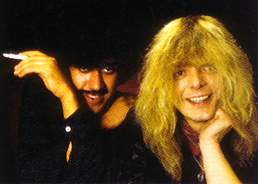
With Phil Lynott
– By the way, were you ever a part of Robin George’s LIFE?
I played keyboards on his album and numerous demos and filled in some dates on a British tour, but I was never officially part of it. Still, I recommended Robin for a one-off MAGNUM tour playing second guitar – he was never part of the band, though – and even introduced him to Phil Lynott and got Phil to play on a couple of his tracks for free.
– There was a rumor of you joining WHITESNAKE, together with John Sykes, in 1984. True of false?
Unofficially, true – John called me from the States and asked me if I would be up for it – but somehow the press got wind of it and it was denied by all parties including David Coverdale.
– You became a part of M3 CLASSIC WHITESNAKE, though. How did this gig come about – via Neil Murray who, I guess, you could meet when touring with COLOSSEUM II?
It actually came about from a recommendation from my good mate Don Airey whom I did meet back in the Seventies whilst touring with COLOSSEUM II – but the bass player was Jon Mole not Neil Murray when I toured with them, supporting with that great Birmingham jazz rock band called RAINMAKER. It was Don who suggested to Bernie Marsden I would be good for the gig. I had also known Bernie since the early Eighties so it was like teaming up with old mates. An absolute pleasure of a gig, I still really miss playing with that line-up, by far the best rhythm section I have ever had the pleasure to be part of.
– How did you feel playing the blues?
As I said I first learned to play the piano to the likes of John Mayall, Brian Auger, CREAM, FLEETWOOD MAC etcetera so blues piano is really the first thing I ever tried to play.
– Wasn’t it hard to tour with M3 and be recording with MAGNUM at the same time?
Not at all. MAGNUM always took precedence if dates should ever clash, and this never actually happened as MAGNUM work so little… for some reason known only to our agent Derek Kemp and Tony Clarkin.
– You’re not doing many sessions but appeared on records by HEAVY LOAD and MOTHERLODE. What about this Sweden connection?
I have actually done many sessions for various artists – both live and on record. Sweden was, and still is, a very important fan base from Phil Lynott’s and MAGNUM’s point of view. As a matter of interest, Kee Marcello, EUROPE’s guitarist, phoned me just two weeks ago do to some work with him, thus maintaining the Swedish recognition
– A couple of years ago you played with the reunited HONEYDRIPPERS. Did you know Robert Plant from the old days?
I have known Robert since the late Seventies and we have been close friends for a long time now. He is a good friend and completely down to earth considering he is a living legend.
– Was it you who took part in PET SHOP BOYS’ “Closer to Heaven” or some other Mark Stanway?

It’s just coincidence that there is another keyboard player with the same name! I have never met him or heard him play.
– There was a band called STANWAY. Was it your attempt to strike on your own?
This was a band that had nothing to do with me, it was my brother Guy Stanway who formed this band, which also spookily had original MAGNUM drummer Kex Gorin, but I never played or appeared with him. I did hear that there was some confusion, and he changed the name to MAZIQUE I think.
– Did you ever think of a solo career – say, a pure piano record – or a Stanway & Birch project?
I have recently done a sort of Stanway / Birch product with a band called THE HUB. This band featured Mo on main vocals, myself of keyboards, Jimmy Copley on drums – he’s the best drummer I have ever played with – the fabulous Ian Jennings on bass, the superb Robbie Blunt on guitar and slide, the unbelievable Micky Moody on guitar and slide, the wonderful Phil Bates on guitar and vocals, and the multi-talented Jim Hickman and Nadia Pearson on backing vocals. This, in my opinion, was the finest band potentially I have ever had the honour to work with and I hope to repeat this and do more gigs when all of that magical star line-up are all available at the same time… not an easy task to achieve but I will make it happen again soon.
RICHIE CAMPBELL- BEST FRIEND
BEST FRIEND
Including results for richie campbell best friend
Search only for ritchie campbell best friend
Best FriendSong by Richie Campbell ‧ 2015OverviewListenLyricsArtists4:03
YouTube • Richie CampbellRichie Campbell - Best Friend
3:13
YouTube • JussbussTVRichie Campbell | Best Friend | Jussbuss Acoustic | Season 2 ...Watch Richie Campbell perform "Best Friend" in this exclusive session of Jussbuss Acoustic's series LIVE from Jack's Hill in Kingston, ...24 May 2015AlbumIn the 876
Released2015
GeniusRichie Campbell – Best Friend Lyrics - Genius18 Feb 2015Videos
3:13Richie Campbell | Best Friend | Jussbuss Acoustic | Season 2 ...YouTube · JussbussTV24 May 2015
3:43Mega Hits - Richie Campbell | Best FriendYouTube · Mega Hits 14 May 2015View all
Spotifyhttps://open.spotify.com › track
Listen to Best Friend on Spotify. Song · Richie Campbell · 2015.
SHAGGY & STING CONTINUES
Shaggy & Sting Reunite for New Single, "Til A Mawnin" & Music Video...
February 25, 2025
To Be Released February 27 on Ranch Entertainment/VP Records
Best Friends and Iconic Duo to Co-Headline the Reggae Rise Up Festival
Following the Grammy Award for their collaborative album, 44/876, music icons Sting and Shaggy are back with “Til A Mawnin” - a new single and music video that celebrate one of the pillars of reggae culture: Sound-System. The pair’s latest release, out February 27 via a partnership between Shaggy’s Ranch Entertainment and the seminal reggae/dancehall label, VP Records, takes listeners through the rich roots of reggae, blending Sting’s signature melodic style with Shaggy’s unmistakable dynamic flow to create a fusion of old-school reggae vibrations and contemporary flair. Click here to pre-save.
With this track, the duo, both managed by Martin Kierszenbaum at the Cherrytree Music Company, pay homage to the Sound System culture that contributed to fueling reggae’s global influence, while the accompanying music video – directed by Jay Will - brings this tribute to life, offering a visual celebration of reggae’s enduring legacy.
Written by Shaggy, Sting & Henry “Junjo” Lawes, “Til A Mawnin” is a re-lick of the “I’m Not Getting Crazy” riddim, originally produced by Lawes with backing by the legendary Roots Radics Band. The riddim has been the foundation for several classic reggae tracks, including Don Carlos’ “I’m Not Getting Crazy,” Frankie Paul’s “Worries in the Dance,” and Yellowman’s “Getting Married.” Shaggy, alongside Shane Hoosong, produced this updated version, bringing new energy while preserving the essence of its dancehall roots.
The new track was mixed by 4-time Grammy Award winner, Robert Orton and mastered by Gene Grimaldi at Oasis Mastering.
On March 13, Sting and Shaggy will co-headline the Reggae Rise Up Festival – one of the largest and most anticipated reggae festivals in the country - in St. Petersburg, FL.
Welcome to the Reggae Charts (Top 10) – your opportunity to get up to date with massive reggae tunes that are hitting all over the world. The chart is updated monthly so please check back regularly for updates. On each listing, you have opportunity to either listen or watch the videos. If you like any of the songs, please follow the links to take you to checkout.
This chart was assembled by Richie B courtesy of the Reggae Vibes Online Magazine www.reggae-vibes.com

Skyline Radio, keeping you upto date with the Reggae scene across the World! Please bookmark – Reggae Charts (Top 10)
Please also check out the Dancehall Charts and the R’n’B Charts exclusively together on Skyline Radio
DINERO - IN.DIGG.NATION/SIX COURSE MUSIC/RCA RECORDS
Lila Ike
SADDEST DAY - PENTHOUSE RECORDS
Bugle & Dexta Daps
MR RASTAMAN - GHETTO YOUTHS INTERNATIONAL/BEBBLE ROCK MUSIC
Kabaka Pyramid ft Tifa
WHOLE HEAP - OVERSTAND ENTERTAINMENT/EASY STAR RECORDS
Mortimer
NOT TODAY - TADS RECORDS
Tanya Stephens
LOWE MI - GOOD HZ MUSIC
Sevana
RELATIONSHIP - IRELAND RECORDS
KABAKA PYRAMID TALKS UK TOUR, 'CONTRABAND' & REPARATIONS FOR JAMAICA
What message are you trying to get across in this album?
Well, the whole message behind Contraband, is that consciousness & evolutionary thinking is treated as contraband, it's treated as something you are not supposed to have or want, so we are playing on that metaphor throughout the whole album. And you know it's reallythat the music is the contraband, the music is the message, and its good contraband from our perspective, its healing contraband, but they just don't want it, they are not promoting it on the television, so we have to give it in the music.
You are touring Bristol, London & Manchester this June, what are you most looking forward to with this tour?
I love the vibes in the UK, and I haven't been to Manchester, so definitely looking forward to that and all the shows.
London as the biggest city it's definitely something I am very excited about for sure, I am coming with the band Bebble Rockers, so its live music, looking forward to working with Randy Valentine and Marla Brown, they will be on tour with me, so it's going to be nice.
What do you bring that's special?
Well, I think as a reggae artist I am a little bit more diverse than usual, so I do a little bit of rapping, I kinda mix it up a bit, I think the stuff that I talk about tend to be a little outside of the box when it comes to Rastafarianism and reggae music.
Like speaking about yoga, meditation, chakras and reincarnation, not a lot of people touch on those topics so people can expect a different vibration than most artists.
So what ideas changed your life?
Rastafari as a culture and as a bridge to Africa changed my view of life, I think ganja also changed my whole view of life. My whole thought process and the way I analyse things kinda deepens when I use Cannabisand Rastafari came hand in hand with that, as well as a deep appreciation for reggae music.
Music was very instrumental in that whole process for me, learning about Africa, learning about his imperial majesty as a black king, in the mid 1900's rose to prominence, and was one of the most popular people in the world, you know in a time of white supremacy and that was very symbolic for me.
You know so many people live with distraction to distraction, so sports, news, all of these social medias, it's hard to blame somebody when they can't see what really needs to be seen.
What would you fill a swimming pool with if it could be anything?
Naturally, the first thing would be water but I am kinda thinking something like apple juice. Apple juice in one of my favourite things so why not!
So what's next for you?
We are editing the video for 'Can't Breathe' so we are looking forward to releasing that, we are also going to Europe doing a lot of the major reggae festivals and then we are doing Reggae Sumfest in Jamaica, and immediately after that we doing a US & Canada tour all over North America.
I am also producing a track for an artist in Jamaica named Five Star and it is the second single off his upcoming EP, so you can definitely look forward to that. So I am kinda spreading my wings with production a little.
Any last words?
There is this company named Enbois by Maxim who does these wooden bracelets, and each bracelet sold means a tree is planted in Haiti, cause he's from Haiti. So I have done some Kabaka bracelets with him and we are bringing them on tour with us, so people can look forward to that.
LATEST INTERVIEWS
- 'Nowadays I’m definitely more chill' - Guestlist catches up with Natty
- A trip down memory lane with Susan Cadogan
- Mellow Mood: 'If you waste your time seeking for stuff you don’t need you are wasting your wealth'
- Jah Sun on reggae - 'If you are using music to express yourself and to transcend, that's beautiful'
- Jose Luis: 'We are happy to have played our part in pioneering the reggaeton movement in the UK'
- Shanty Giving You Those Good Riddims
- Collie Buddz talks smoking with Snoop, the 'Good Life' & future projects
- Kabaka Pyramid talks UK tour, 'Contraband' & reparations for Jamaica
- Marcus I on 'Inner Calling': 'It is a call from within, to look inside and find our true self, sincere and naked'
- Marina P's 'Something New' Giving Us All The Right Sensations
BUSHMAN - TUFF GONG- 1Xtra Jamaica
KINGDOM OF MADNESS PERFORM MIDNIGHT
MARK STANWAY & THE GANG
YouTube · Get Ready to ROCK!-Video-Podcasts50+ views · 1 year ago
15:46Long-time Magnum keyboard player Mark Stanway chats about his new project Kingdom of Madness.Missing:
reggae | Show results with: reggae
Remember Phil & Garyhttp://remember-phil.com › mark-stanways-storyIn March 1983 I visited Lombard Studios in London to see my old mate John Sykes who was working with Phil Lynott on the final mixes of 'Thunder and Lightning'.Missing:
reggae | Show results with: reggae
WordPress.comhttps://wordsandmusicbook.wordpress.com › 2013/09/1919 Sept 2013 — The outstanding keyboard work of Mark Stanway, a man who's shared the stage with Messrs Clarkin and Catley since 1980 and whose addition saw the (already great ...
Missing:
reggae | Show results with: reggae
outsiderrock.cahttps://outsiderrock.ca › 2018/02/12 › mark-stanway-in...12 Feb 2018 — In this interview, Mark shares some recollections from his early days, his time with Magnum, and what he is currently up to and has in the works for the future.
Missing:
reggae | Show results with: reggae
Wikipediahttps://en.wikipedia.org › wiki › Mark_StanwayMark Stanway (born 27 July 1954) is an English musician. He was the keyboard player for the hard rock band Magnum from 1980 until the end of 2016.Missing:
reggae | Show results with: reggae
The rise of reggae: How a uniquely Jamaican sound conquered the world

It originated on a small Carribean island and grew to become a global phenomenon recognised as a cultural institution by UNESCO, the story of reggae's success is closely entwined with the history of Jamaica.
Reggae's roots, springing from the social upheaval in post-war Jamaica, are a fusion of different musical eras and styles, coupled with a message of unity and hope.
How did this musical genre, with a uniquely Jamaican twist, become a worldwide brand influencing artists like Rihanna and Sean Paul?
Mento and the birth of reggae
Mento is the name given to Jamaican folk music that emerged in the 1940s and 1950s.
Similar to Calypso, which originated in Trinidad, the sound of Mento can be traced back to the convergent society of Jamaica.
Jamaica was colonised by Spain, mainly in the 1500s, and then Britain in 1655.
Enslaved people were transported from Africa to work on the country’s sugar plantations.
The resulting mix of cultures contributed to the growth of an identifiable Jamaican sound.
Characterised by the fusion of European and African traits, with origins in enslaved work songs – created with guitar, rumba box, bongo and banjo, Mento mixed this with satirical lyrics of everyday life and verse repetition, creating a foundation from which reggae would blossom.
The growth of Ska
In the 1960s the popularity of Mento began to decline as people were influenced by R&B music from the USA, played on radio stations.
Across Jamaica musicians and singers began to cover these songs and imitate their styles.
At the same time electricity was becoming widely accessible and sound systems – mobile discos on the streets – became the new craze.
Dances were a big part of the Jamaican working class community and became a place of business with people selling food and drinks, spreading money to the wider community.
Competition was rife with sound men competing to put on the best set, even sometimes resorting to violence.
It was all about the exclusivity, getting songs from overseas no one had heard of. Music became a national obsession particularly among the young.
One school in particular, Alpha Boys School, run by nuns, encouraged music playing and helped develop some of Jamaica’s greatest musicians including Yellowman, Edward Thornton and Dizzy Reece.

The influence of R&B
Meanwhile Jamaica’s professional recording industry was also starting to take shape.
Recording studios, which had concentrated on American influenced R&B, began hiring out their facilities to local musicians who recorded original songs which were picked up by sound systems, still looking for that exclusivity.
Jamaica became independent in 1962 and Ska’s upbeat rhythm reflected the mood in the newly autonomous country.
Adopting America R&B style but adding Mento elements, the new music kept a 4/4 timing with guitar or piano used to increase emphasis on the off-beat and along with a dynamic brass section and a creeping bass line, a distinct new Jamaican sound, of local singers, was created.
Ska was also growing in popularity overseas, Millie Smalls had a top five hit in the UK chart with My Boy Lollipop in 1964.
This seeping of Jamaican music in to popular culture would continue with cult 1972 film The Harder They Come, the title track of which was performed by Jimmy Cliff, with other contributors including Desmond Dekker.
Rocksteady a slower pace
Ska was a fast paced chaotic musical genre but from the mid 1960’s the climate in Jamaica that had spawned it was beginning to change.
Streets in downtown Kingston become lawless with ‘Rude Boys’ gangsters terrorising locals.
Music mirrored this and Rocksteady, a slower paced sound, grew in popularity.
Musicians would turn to old-fashioned love songs, and singers replaced instrumentals.
Rhythms became more relaxed and songs easier to dance to.
This also gave the bass line more of an emphasis as the slower pace allowed it to be more defined.
Artists such as Alton Ellis and The Techniques thrived in this era. Some artists such as Hopeton Lewis found Ska too fast to follow and so adapted to a gentler pace.
Rocksteady, however, would prove to be a brief affair, lasting around two years.

Reggae in to the mainstream
In 1966 Emperor Haile Selassie I of Ethiopia visited Jamaica – an important moment for the religious movement Rastafari which saw him as the messiah - 100,000 Jamaicans turned out to see him.
This link with Rastafarian culture would become a vital strand of reggae.
During the late 1960’s, Jamaica was on the brink of civil war, with political unrest, poverty and volatile streets.
Reggae with the bass taking charge, and drums as part of the melody, reflected this new Jamaica.
Lyrics became more conscious and words of protest and revolution changed the vibe and identity of the sound.
Roots reggae concerned itself with the everyday life and hopes of Africans, led by the Rastafarian belief and it was this genre that Bob Marley and the Wailers took global.
Marley sang of the past oppressions of slavery and the future hopes of unity.
Sub genres such as dub also formed, consisting of recycled and remixed rocksteady and ska tunes, incorporating a toaster, essentially an MC, who spoke over the song with Rastafarian messages.
The dancehall genre also emerged using digital reggae influenced rhythms.
By 1978 a failing economy and political unease was at its peak and political issues along with the musical tradition all came together in reggae to form strong lyrics with an uplifting sound to empower.
Reggae’s presence can still be felt today, influencing genres such as punk, hip hop and rock through artists such as Eric Clapton, Sean Paul, Rihanna, Protoje and Chronixx.
Through time, Jamaicans have constantly mirrored their environment through music, creating an authentic reflection of the nation.
The power of reggae, built on a foundation of history with the spirit of the Jamaican people and messages of a better future, became a notion with universal appreciation.
Buju Banton
Buju BantonJamaican singerOverviewSongsAlbumsEventsBuju Banton
Age51 years15 July 1973Songs
Buju Banton
1,697,739 monthly listenersPopular
Hills And Valleys
48,361,163
Champion
46,202,611
Murderer
27,223,519
Party Girls (feat. Buju Banton)
17,615,109
Bonafied Love
11,953,760
Popular releases






SOUND SYSTEM CHRONICLES V SIR COXSONE SOUND SYSTEM
How the development of reggae music expanded throughout the world . This is a great watch for all reggae fans.
Wikipediahttps://en.wikipedia.org › wiki › Coxsone_DoddFor youClement Seymour "Coxsone" Dodd CD (26 January 1932 – 4 May 2004) was a Jamaican record producer who was influential in the development of ska and reggae in ...
Enki's Music Recordshttps://enkismusicrecords.com › biography-clement-sir-...For you
Clement "Sir Coxsone" Dodd was a pioneering Jamaican record producer. He fostered the career of almost every famous reggae artist.
Jamaica Observerhttps://www.jamaicaobserver.com › 2024/03/06 › coxso...For you
6 Mar 2024 — Coxsone Dodd's daughter demands apology over portrayal of
vINTAGE MUSIC TITLES.
Direct Drive - Anything ? & I won’t be back tonight extended version.
Funksters 4 track 12 “ single - MADAGASCAR. Baby not tonight- SPACES song for Jeremy. ( Jazzfunk)
Effects -JAZZ GOLD Swingtime Volume Two. St James infirmary Louis Armstrong 12 tracks
Effects -JAZZ GOLD Swingtime Volume Two. St James infirmary Louis Armstrong 12 tracks
Funksters 4 track 12 “ single - MADAGASCAR. Baby not tonight- SPACES song for Jeremy. ( Jazzfunk)
Effects -JAZZ GOLD Swingtime Volume Two. St James infirmary Louis Armstrong 12 tracks
Funksters 4 track 12 “ single - MADAGASCAR. Baby not tonight- SPACES song for Jeremy. ( Jazzfunk)
Funksters 4 track 12 “ single - MADAGASCAR. Baby not tonight- SPACES song for Jeremy. ( Jazzfunk)
Funksters 4 track 12 “ single - MADAGASCAR. Baby not tonight- SPACES song for Jeremy. ( Jazzfunk)
Fred Locks - Love and Only Love & Stricker Ishion 12” 45 Tribesman label
Womack & Womack - Baby I’M Scared of you & A.P.B. Single from the album love wars (soul)
Funksters 4 track 12 “ single - MADAGASCAR. Baby not tonight- SPACES song for Jeremy. ( Jazzfunk)
Womack & Womack - Baby I’M Scared of you & A.P.B. Single from the album love wars (soul)
Womack & Womack - Baby I’M Scared of you & A.P.B. Single from the album love wars (soul)
Womack & Womack - Baby I’M Scared of you & A.P.B. Single from the album love wars (soul)
OUR MUSIC & ENTERTAINMENT CHANNEL
Trevor Nelson Interview
Trevor Nelson: Five things we learnt
Broadcasting great DJ Trevor Nelson has been influencing the soul, R&B and dance music scene for the past 37 years, ever since he started out as ‘Madhatter’ in 1985 on then pirate radio Kiss FM. 5 years later in 1990, the station gained a license and the rest of Nelson’s career is history.
Nelson joined Radio 1Xtra colleague Nick Bright for a two-part Radio 5 Live special on the most seminal moments of his epic career and life.
Here are five things we learned about Trevor Nelson.
His interview with Lauryn Hill means the most to him
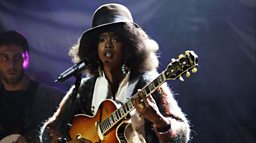 Photo: Yui Mok/PA
Photo: Yui Mok/PA
“Personally, she’s the greatest, that album is the greatest of its generation,” Nelson says of Hill’s 1998 album The Miseducation of Lauryn Hill.
“What she meant, what she stood for, the way she looked. Everything about her was the embodiment of what I love about music,” he continues.
Remembering the interview, Nelson says, “she did the whole album for me live on my show.”
Hill was also due to perform a live cover, but wouldn’t tell Nelson which track she had chosen.
“My favourite opening line of any song in the world is Sam Cooke - A Change is Gonna Come…that for me is so emotive…it’s quite emotional if you’re black or from the South or descended from slavery,” shares Nelson.
The opening line reads ‘I was born by the river, in a little tent…and just like the river I've been running ever since. It's been a long, long time coming, but I know a change is gonna come.”
“Lauryn went in there and…she changed the lyrics to ‘I was born by the river, in a tenement, oh, my poor mother, she could hardly pay the rent. It's been a long, long time coming, but I know a change is gonna come.”
“I was the only one in that room and I sat there and I just went wow….that was a very special moment for me…she didn’t know that was my favourite line to any song.”
“They ended up releasing it on the B side of one of their singles - that session.”
His MBE is not for broadcasting
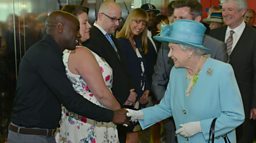 Photo: BBC - Queen Elizabeth II during opening ceremony of BBC New Broadcasting House, June 7th 2013
Photo: BBC - Queen Elizabeth II during opening ceremony of BBC New Broadcasting House, June 7th 2013
Despite having over 32 legal years in the music and broadcasting industry under his belt, his MBE was surprisingly not awarded for services to broadcasting.
“When I was at Radio 1 and MTV…music magazines were big at the time. They started doing polls of the most powerful people in dance music….one year I was 4, then 5…I felt I had a responsibility to do stuff,” he explains.
“This thing came up, this initiative called Millennium Volunteers. It was about 15-24 year olds who felt slightly marginalized or excluded. It didn’t matter what colour you were, what gender or race you were…they had ten ambassadors and I was one of them,” Nelson continues.
“If you’re in a wheelchair, can you coach football?...If you're partially sighted, can you be a photographer? The feeling is no, right? So you never tried, never had the opportunity. What this was, anybody that wanted to do anything, can try it,” he says of the initiative.
Nelson says the way he was notified about receiving an MBE was ‘strange’. “I did it because I felt life was so good for me…then one day I got a call, ‘would you be opposed to being nominated for something’, and you find out when it’s in the press.”
Just three people paid for his first gig
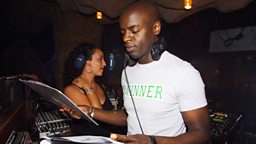 Photo: BBC - Nelson's Rhythm Nation show on Radio 1 from club Ics Ku, Ayia Napa
Photo: BBC - Nelson's Rhythm Nation show on Radio 1 from club Ics Ku, Ayia Napa
Talking about the difficulties of getting started as a DJ, Nelson says it’s important to ‘put yourself out on a limb’ and ‘force the narrative’ rather than ‘waiting for bookings.’
“All we could get was venues on a Monday, Tuesday, never on a Friday” and the start of the night was filled with “that horrible feeling of waiting to see who turns up,” he says.
“My first gig, three people paid, 27 on the guest list so 30 people there, there were more bar staff…someone said to me, why don’t you try and play more commercial music. I said ‘three people paid. I’ll make that four next time’.”
It’s now a few more than four tickets that Nelson sells on his tour dates - try five figures.
His first job was at a Green Grocers
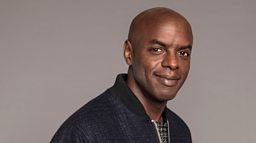 Photo: BBC/Ray Burmistons
Photo: BBC/Ray Burmistons
Nelson says he was familiar with being a minority from a young age. He attributes this to his school experience and his first job.
“School was an insight into what the world was going to be like, everywhere I went I was a minority. I was used to it. I didn’t have a problem with it, I expected it, I knew how to read a room, how to chat to people who weren’t like me,” he says.
“I got a job at 15, I worked for this Jewish Green Grocer called Mr Morris. I used to do his orders, I used to have to chat to people of all types, people I would never talk to…it was a completely different outlook on life for me, then I’d just go back to my mates,” he continues.
He believes this contributed to his interview skillset. “I didn’t go to broadcasting school, that was my broadcasting school…I was not nervous talking to someone not like me at a very young age.”
A bank approved his loan for a car, he bought turntables
 Photo: BBC
Photo: BBC
When first starting out as a solo DJ, having a good sound system is essential for successful club nights and events. They’re not cheap and storage and transportation can be difficult.
Speaking about his own initial set up Nelson says, “the speakers were at Charlie’s house, decks at my house, mixer at Kevin’s house…we borrowed money from a bank…we had a van we hired.”
“I took a bank loan out for a car but I bought turntables,” Nelson admits.
Speaking on the sound system dominance of DJ collective Soul II Soul founder Jazzie B, Nelson said “he had a set up, I remember him telling me, I’ve never forgotten, I said ‘what’s going on there,’ he said, ‘Princes Trust Initiative. Start a business’.”
“I’d heard of it but that was the first time I'd seen it in action…Prince Charles has got a hell of a lot to do with Soul II Soul,” Nelson laughs.
 'I took one souvenir from the Father Ted set''I took one souvenir from the Father Ted set'
'I took one souvenir from the Father Ted set''I took one souvenir from the Father Ted set'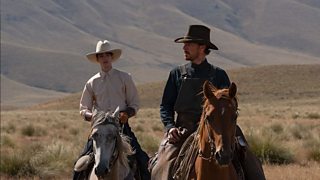 Benedict Cumberbatch on method acting, directing and masculinityBenedict Cumberbatch on method acting, directing and masculinity
Benedict Cumberbatch on method acting, directing and masculinityBenedict Cumberbatch on method acting, directing and masculinity Sam Fender: Five things we learntSam Fender: Five things we learnt
Sam Fender: Five things we learntSam Fender: Five things we learnt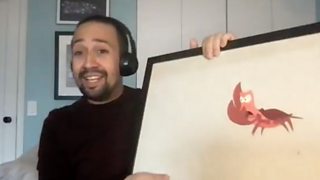 Lin-Manuel Miranda on Disney, Sondheim and HamiltonLin-Manuel Miranda on Disney, Sondheim and Hamilton
Lin-Manuel Miranda on Disney, Sondheim and HamiltonLin-Manuel Miranda on Disney, Sondheim and Hamilton

DA FUCHAMAN & THE FIRE BLAZE BAND
Zemroy Thomas (13th September 1980), better known by his stage name Da Fuchaman is a Jamaican reggae singer, songwriter and member of the Rastafari movement.
Da Fuchaman grew up in rural Middle Buxton on the north coast of St Ann Jamaica. His family is from a deeply religious background, so it was no surprise that he started singing in churches and school. Although Da Fuchaman doesn’t view himself as religious, he has deep rooted beliefs in spirituality which is evident in his music.
As a teenager Da Fuchaman was singing in local sound systems and entering competitions, where he began to gain credibility in the local community of Middle Buxton and surrounding areas. His main influences were the likes of Bob Marley, Buju Banton, Capleton, Sizzla, Anthony B, Bounty Killa and Beenie Man but to name a few.
Da Fuchaman migrated to the UK in the summer of 2002 and it didn’t take long before he started getting integrated into the UK music scene. Da Fuchaman initially began working with renowned DJ Gee and started performing with David Zowie, Edixion, Roadz and Grammy nominated Tippa Irie.
In 2016 he formed his live band now known as Da Fuchaman and his Fire Blaze Band which has taken him to new heights. Da Fuchaman and his ten piece collective have been taking the UK festival scene by storm even performing at more than 20 festivals during the summer of 2022 including Boomtown Fair, Secret Garden Party, Camper Calling, Kendal Calling, Greenman, Moovin Festival, Cider Rum and Reggae, and many others.
One of his biggest music achievements was winning the Best Reggae Artist in the South West in 2018. This was a significant moment for Da Fuchaman as it was a good recognition for his music, and it was the same year his single “So Much Love” topped the itunes chart.
Da Fuchaman is known as one of the most hardworking artist in the business amassing 8 studio albums, 8 EPs and multiple singles. He has collaborated with some well renowned artists such as Anthony B, Turbulence The Future, Lutan Fyah, Perfect Giddimani and Queen Omega to name a few and his latest album titled ‘Buxton Boy’ was released in July 2022.
Da Fuchaman is known for his high energy stage performances throughout the UK and Europe and prides himself on spreading love and positive vibrations to the massive everywhere he goes. In summary, if you too are a sucker for love and positivity whether you are a reggae fan or not then you don’t need look much further than Da Fuchaman and his Fire Blaze Band as this is guaranteed.
@diplomatsofsound
Sign up for news
Email Address *
NEWS BIO PHOTOS VIDEOS RELEASES MUSIC DATES 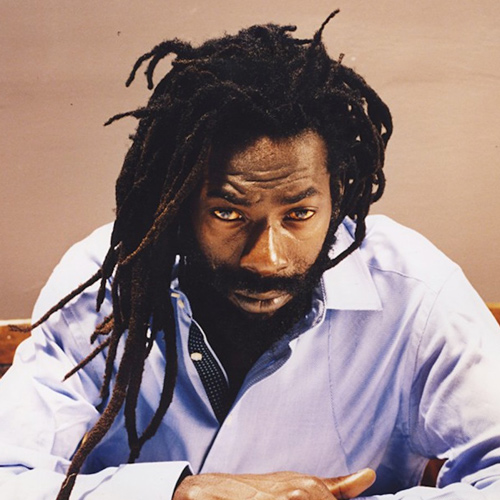
“Be strong,” sang Buju Banton the last time he set foot onstage before a live audience. “Hold a firm meditation. One day things must get better.”
The date was January 16, 2011. The occasion was a concert in Miami’s Bayfront Park called ‘Before the Dawn.’ After eleven months in captivity, the legendary reggae artist had been granted the opportunity to perform for one night to help fund his legal defense against an extremely problematic case which had already resulted in one mistrial and allegations of juror misconduct.
Buju was joined by a star-studded lineup of fellow musicians and staunch supporters, from DJ Khaled and Sean Paul to Stephen “Ragga” Marley and Damian “Jr. Gong” Marley—to name a few. Buju opened his emotional set with “Close One Yesterday,” a song about surviving against all odds. “Don’t you go down,” he sang. “Keep your head above the water. One day things must get better.” His final selection of the night was a prayerful rendition of “Psalms 23” alongside Gramps Morgan: “Goodness and mercy all my life shall surely follow me / And in Jah’s house forevermore my dwelling place must be.”
A few weeks later, Buju’s album ‘Before the Dawn’ won the Grammy Award for Best Reggae Album—the artist’s first win after four previous nominations. But it would prove to be a bittersweet victory. As his fans are well aware, Buju Banton has been incarcerated ever since that 2011 show in Miami. His voice, however, could not be silenced.
Selections from the artist’s 25-year-deep catalog—including classic albums like Mr. Mention and Til Shiloh and Inna Heights—have stayed in heavy rotation throughout Buju’s time away. Yet his physical presence has been sorely missed. During the past nine years the music that Buju represented on stages all over the world has become even more influential on global pop music, as international pop stars have sought inspiration from Jamaican sounds and styles. Yet while dancehall reggae rhythms have spread far and wide, the spiritual and social consciousness that inspired Buju to become a voice for the voiceless has lagged behind or fallen by the wayside.
The artist whom A$AP Rocky called his “favorite reggae rapper” will finally experience his first taste of freedom on December 8th. Visitors report that Buju is in good spirits, keeping physically and mentally fit and looking forward to returning to the stage and the studio. Anticipation for his return is building as the official music industry publication Billboard recently reporting that “Buju Banton’s Long-Awaited Return is Near.”
“Give a shout out to the fans for me,” Buju told the U.S-based media outlet Boomshots. “Tell them I send my love and I tell them: Do not be distracted by all the things that are taking place around them because it is designed to throw them off kilter and plunge people into a state of darkness… The people are suffering. Sadness and gloom is prevailing. It’s widespread. But be patient. Because suffering may endure for the night, but joy cometh in the morning.”
Buju Banton came into the game like a champion. His voice was a lionesque roar that instantly electrified listeners, sounding impossibly powerful coming from a youth with such a skinny frame.
He was born Mark Myrie, the youngest of 15 children living in the poorest house on Salt Lane, a desolate stretch of road in the slums of Western Kingston. Though financially “downpressed,” the Myrie family were proud descendants of the Maroons, African warriors who escaped slavery and fought for their freedom, establishing their own promised land in the mountainous areas of Jamaica. His father, an aspiring singer, provided for his family through manual labor while his mother sold fresh produce in nearby Coronation Market. It was she who gave him the affectionate nickname “Buju” which means breadfruit, a staple food in many Caribbean households.
Even after Buju managed to elevate himself to become an internationally renowned recording artist, Buju never forgot the poverty of his childhood years. He has used his music to serve as a voice for the voiceless, and he recently established the Lend a Hand Foundation to make a difference in the lives of at-risk children, both in Jamaica and all around the world.
“I wouldn’t say I was a nice boy,” Buju says, reflecting on his childhood. “I was a little bit troulblesome.” Most of all he loved to go to the dancehall. “My love develop by hearing other acts, such as Flourgon, Daddy Lizard, Burro Banton, Nicodemus, Jim Kelly, Early B, just to name a few,” he recalls. “The inspiration start because they used to run the business, and I was just a youth. To hear the style and what they was really puttin’ out inspired Buju Banton—alongside almighty Father God.”
As he entered his teen years, Buju would occasionally get the chance to hold the microphone around local sound systems—mobile DJ sets which were popular throughout Jamaica, and eventually spread to America, giving birth to hip hop culture. Buju cut his first record “The Ruler” at the age of 14 for producer Robert Ffrench. A few years later he recorded his breakout hit “Stamina Daddy” for Winston Riley’s Techniques label. By the age of 19 the prolific recording artist had broken a Jamaican record for the most #1 singles in one year—a mark set by none other than Bob Marley, the King of Reggae.
The Banton—a term of respect within dancehall culture—was just getting started.
The sound of Buju’s breakthrough 1992 album Mr. Mention was primarily dancehall style—hard-edged digital rhythms programmed by production mastermind Dave Kelly for Donovan Germaine’s Penthouse Records. As one of those rare artists whose work defined the cutting edge of his chosen genre, Buju set trends with each new release. His music was already internationally known when he signed a recording contract with Mercury Records in New York City and released his major label debut, Voice of Jamaica in 1993.
Ever true to his roots, Buju presented the best his island had to offer: production by the Penthouse posse as well as Sly Dunbar, Bobby Digital, and Mikey Bennett, vocals by Beres Hammond, Wayne Wonder, Tony Rebel and Terry Ganzie. The only “crossover move” on the album was a track called “Wicked Act,” a reggae-boom bap mashup featuring a young Busta Rhymes tapping into his own Jamaican roots. Buju would also collaborate with the American rap star Heavy D during the early ’90s but the Banton never strayed, always compelling the foreign artists he worked with to adapt to his style rather than the other way around.
In 1994 the Jamaican music community was shaken by a series of tragedies. Rising dancehall stars Panhead and Dirtsman both fell victim to gun violence, cutting short two promising careers just as they were taking off. Soon thereafter a powerful roots singer named Garnet Silk lost his life in a tragic and suspicious house fire while trying to save his mother from the blaze. Buju expressed the sadness and discontent with a song called “Murderer” which literally changed the course of dancehall music as we know it. The song offered a critique of the “gun lyrics” that had once held sway, appealing to a sense of decency and respect for human life. Recorded over a Penthouse version of the classic “Far East” rhythm, the song would become an anthem—inspiring multiple “answer” songs by other artists and shifting the cultural mood almost overnight. Buju had become more than a superstar, he was now becoming a leader.
It is strange this feeling I’m feeling
But Jah love we will always believe in
Though you may think my faith is in vain
Til Shiloh we chant Rastafari name
The opening lines from Buju’s 1995 album Til Shiloh marked the dawning of a new era in music. Universal songs like “Untold Stories,” “Not An Easy Road” and “Till I’m Laid To Rest” revealed a whole new dimension to the artist’s talent, as he expanded his sound beyond the barriers of genre. “I see this as a total compilation of my concept of the music and how I feel about this music in depth,” Buju said at the time. “This whole thing is reggae, you know, despite whatever fusion. Too much fusion bring about too much confusion and everyone want to carry the music into a different channel. Hence people will either determine that this is dancehall or reggae or calypso or whatever. But as far as I am concern, this is reggae music. Don’t abuse it.”
Aside from musicological debates, the substance of Buju’s message had evolved as his knowledge increased through the passage of time. “What happen bascially is Jah have to be praised,” Buju explained shortly after Til Shiloh’s release. “Everywhere in the township in the churches in the rural parts—everywhere, And we are the soldiers and he called upon the youths because we are strong. Right now we have to clean up this business thoroughly!”
On one haunting song called “Complaint,” Buju collaborated with the late-great Garnet Silk aka “The Archangel,” chanting lyrics that still bring goosebumps to the listener: “Let Jah rise and the heathen scatter / Got to give thanks and praises no matter / Even though the flame is getting hotter and hotter / Everybody should know and don’t believe inna rumor.” Those words would prove prophetic in years to come.
In years to come, Buju Banton would elevate his stature within the world music community, collaborating with American rap stars like Fat Joe as well as the rock band Rancid, not to mention his close working relationship with the Marley family. He toured the world, spreading consciousness-raising music to the four corners of the earth. He also built up his own studio on Red Hills Road in Kingston Jamaica, establishing his own Gargamel Music imprint to release his own work and give aspiring youths a chance to be heard. He continued releasing timeless albums like Inna Heights, Unchained Spirit, and Friends for Life.
And then in December 2009 Buju was arrested at his home in Florida after getting entangled in a complex drug conspiracy which had been orchestrated by a paid government informant. The charges were completely out of character for an artist whose music had criticized drug use over the years, but after a mistrial, and a long court case marred by charges of juror misconduct, Buju elected to do his time and put the whole experience behind him. As he once stated on that record with Garnet Silk: “Don’t believe inna rumor.”
“There is a big void without Buju Banton in the music,” veteran reggae singer Cocoa Tea told Billboard. “He was always touring, always working. He started that work as a teenager, and he worked until he was decades into his career,” said Pat McKay, director of programming for reggae at Sirius XM. “In that time he built a world community fanbase. They still miss him and they still want to hear from him. His work still has value, it’s still quotable and the aspirations of that work will always ring true.”
It has been a long time coming, but the dawn Buju sang about in his Grammy-winning album is almost here. And just as the artist promised, “Joy cometh in the morning.”
YOU MIGHT ALSO LIKE THIS
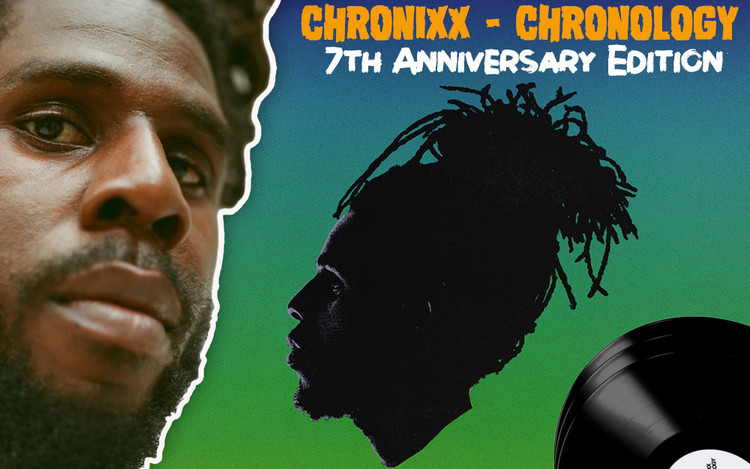 08/14/2024 CHRONIXX ANNOUNCES CHRONOLOGY - THE 7TH ANNIVERSARY EDITION
08/14/2024 CHRONIXX ANNOUNCES CHRONOLOGY - THE 7TH ANNIVERSARY EDITION 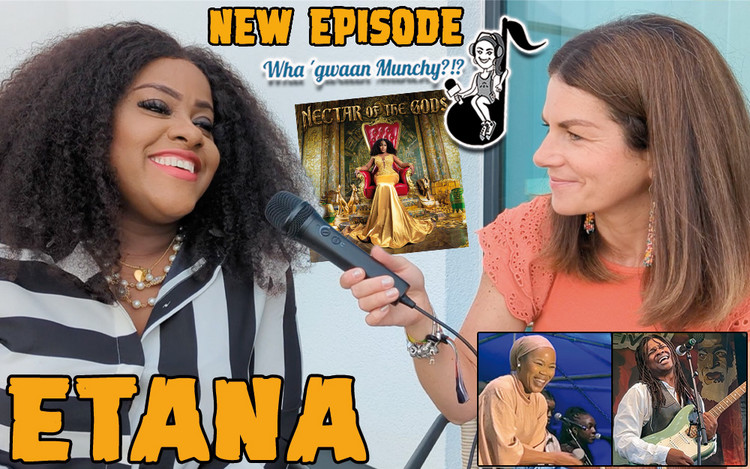 07/31/2024 ETANA @ WHA‘ GWAAN MUNCHY?!? #80
07/31/2024 ETANA @ WHA‘ GWAAN MUNCHY?!? #80 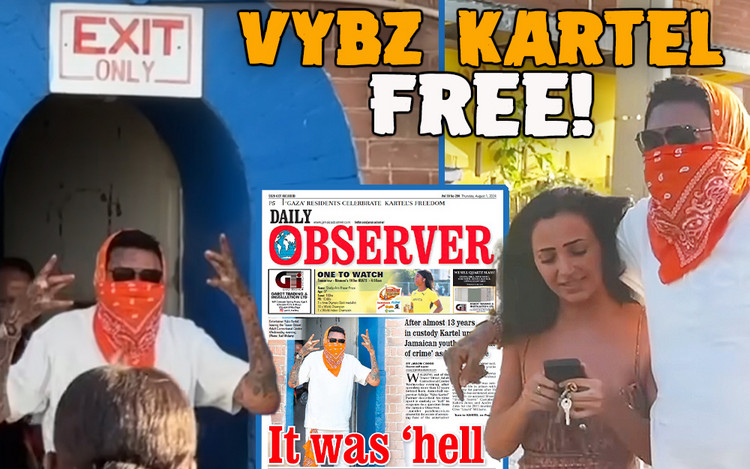 07/31/2024 VYBZ KARTEL FREE! RELEASED FROM PRISON AFTER 13 YEARS
07/31/2024 VYBZ KARTEL FREE! RELEASED FROM PRISON AFTER 13 YEARS  08/16/2024 MARLON ASHER X STRESS NADA - NEVER BLIND
08/16/2024 MARLON ASHER X STRESS NADA - NEVER BLIND  08/16/2024 JUNIOR KELLY - PROTECTION
08/16/2024 JUNIOR KELLY - PROTECTION  08/15/2024 R ZEE JACKSON - KEEP ON PUSHING RASTAMAN
08/15/2024 R ZEE JACKSON - KEEP ON PUSHING RASTAMAN
© 2024 REGGAEVILLE.COM
We are using cookies on this website to give you the best, most relevant experience. By continuing to use the website, you agree to the use of cookies. Further information on cookies can be found in our privacy policy
I
UK GARAGE MIX BEST OF OLD SKOOL GARAGE
“Everyone kind of likes garage, right?” asks Zachary Bruce—aka Interplanetary Criminal, one of the leading lights of the UK garage renaissance, dubbed “NUKG.” The scene has been bubbling away in the underground for the last four years or so, and in 2022, Bruce broke into the mainstream with his instrumental for Eliza Rose’s colossal, sun-kissed chart-topper “B.O.T.A (Baddest Of Them All).”And his words ring true: There’s just something about the spinbacks, the subby bass, and the skippiness of UKG that has made a new generation of music fans giddy with ‘90s nostalgia.
“You look at that legendary Todd Edwards video where everyone is going mad for it,” Bruce continues. “I feel like that is what kids want when they go to the club. They wanna recreate those moments from back in the day. It’s so weird to think that the sound’s got a number one, but also it gives me a lot of hope for all of these artists that I’m surrounded by.”
Curated by Bruce, All Thru the Night is a new 16-track compilation from iconic UK label Locked On Records (famously home to The Streets) that showcases some of those artists in songs bursting with new takes on the old-school UK garage sound. It caters to present-day club tastes while also respecting the genre’s originators. It also marks the 25th anniversary of Locked On’s first-ever compilation by garage pioneer Todd Edwards.
UK garage first emerged in the mid-‘90s, taking its cue from the soulful garage house records coming out of the U.S. that had made their way over to the UK toward the end of the previous decade. When British producers began putting a distinctly UK spin on these sounds—melding rave, R&B, and Jamaican soundsystem culture—garage was born.
UKG eventually splintered off into the jungle-influenced basslines and four-on-the-floor warped ‘n’ wobbliness of speed garage (also known as “plus eight”) and jittery 2-step (which changed the time signature from 4/4 to 2/4) and by the turn of the millennium, had become a chart-dominating commercial phenomenon, as documented by DJ EZ’s top-selling run of Pure Garage CD compilations. It also paved the way for other Black UK genres like grime and drill, which have been popping up in garage 2.0 productions along with a host of other styles.
BEST OF CHRONIXX
Chronixx has become one of the biggest names in reggae by doing things his own way. He releases music on his own imprint — Soul Circle Music, which he co-founded with two of his managers, London-based Pierre Bost and Kingston’s Brendon “Daddi Barnz” Sharpe — instead of working with a major label or an established independent. This approach has led him to some of the biggest festival stages in the world, including both Glastonbury and Coachella.
With much of the music industry scaling back during the pandemic, Chronixx’s extended period at home in Jamaica allowed him time to focus on another task: Signing the first artist other than himself to Soul Circle. Hector “Roots Percussionist” Lewis, the 31-year-old son of the late Jamaican reggae/gospel singer Barbara Jones, has played in Chronixx’s band, Zincfence Redemption, since 2013. His vibrant percussion playing and animated backing vocals, not to mention his energetic dance moves, add texture to the band’s sound, which is anchored in classic one-drop reggae grooves but incorporates contemporary influences into a more progressive blend. “I don’t think of it as signing my first artist,” explains Chronixx. “I think of it as if I have a car and someone needs a lift, I am going to give it to them.”
In a business that is so cold, so hard to navigate, I give thanks that I met Chronixx. He has always encouraged me, so I thought why wait to record?” Lewis says. “As I was finishing up the project, I knew I could go to Chronixx with it and he would listen to me on a deeper level than just as his band member. I told him, ‘I want you to help me bring the project to the world.’ It is a step I wanted to take, and I know he respects things that show that you are trying to better yourself.”
The son of dancehall singer Chronicle, known for such hits as 1995’s “My God,” Chronixx — born Jamar Rolando McNaughton in Spanish Town, about a 30-minute drive from Kingston — learned from his father how to hold a microphone and perform before an audience. As a high school student and aspiring producer, he reached out via Facebook to Jamaican sing-jay Protoje, 11 years his senior. The confident teenager told Protoje he wanted to work with him, and Protoje invited Chronixx to his house. “I always listen to people, because you never know who you are talking to, so he came over and started to play some songs; then casually, out of nowhere, he started to sing, and I said, ‘You are an artist, bro, not just a producer,’” Protoje told me in a 2018 interview. “He was singing songs like ‘Behind Curtain’ and ‘Warrior,’ which became his earliest hits… I was blown away from that very first day.” In the same interview, Protoje unequivocally stated: “Chronixx is the greatest musical talent I have ever had the opportunity to witness work, and I just hope people appreciate the gift to music that he is.”
BURNING SPEAR LIVE @ MAIN STAGE 2006
He is the Jamaican legend who liberated reggae, taking it out of Kingston, drenching it in horns – and giving it a joyous, spiritual kick. As Burning Spear hits the road, he looks back on his astonishing life Rodney was born in Saint Ann's Bay, Saint Ann, Jamaica. As a young man he listened to the R&B, soul and jazz music transmitted by the US radio stations whose broadcasts reached Jamaica. Curtis Mayfield is cited by Rodney as a major USmusical influence along with James Brown.[
Copyright © 2026 NONI SOLUTIONS HEALTH CARE DISTRIBUTION - All Rights Reserved.










